

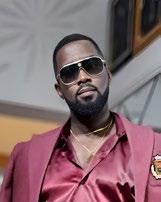
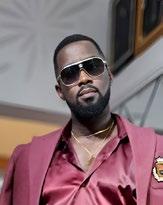


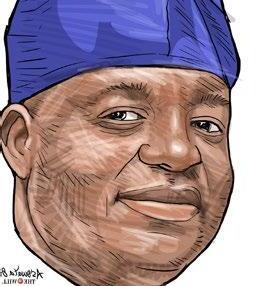
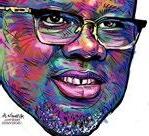
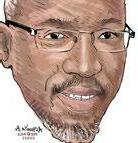

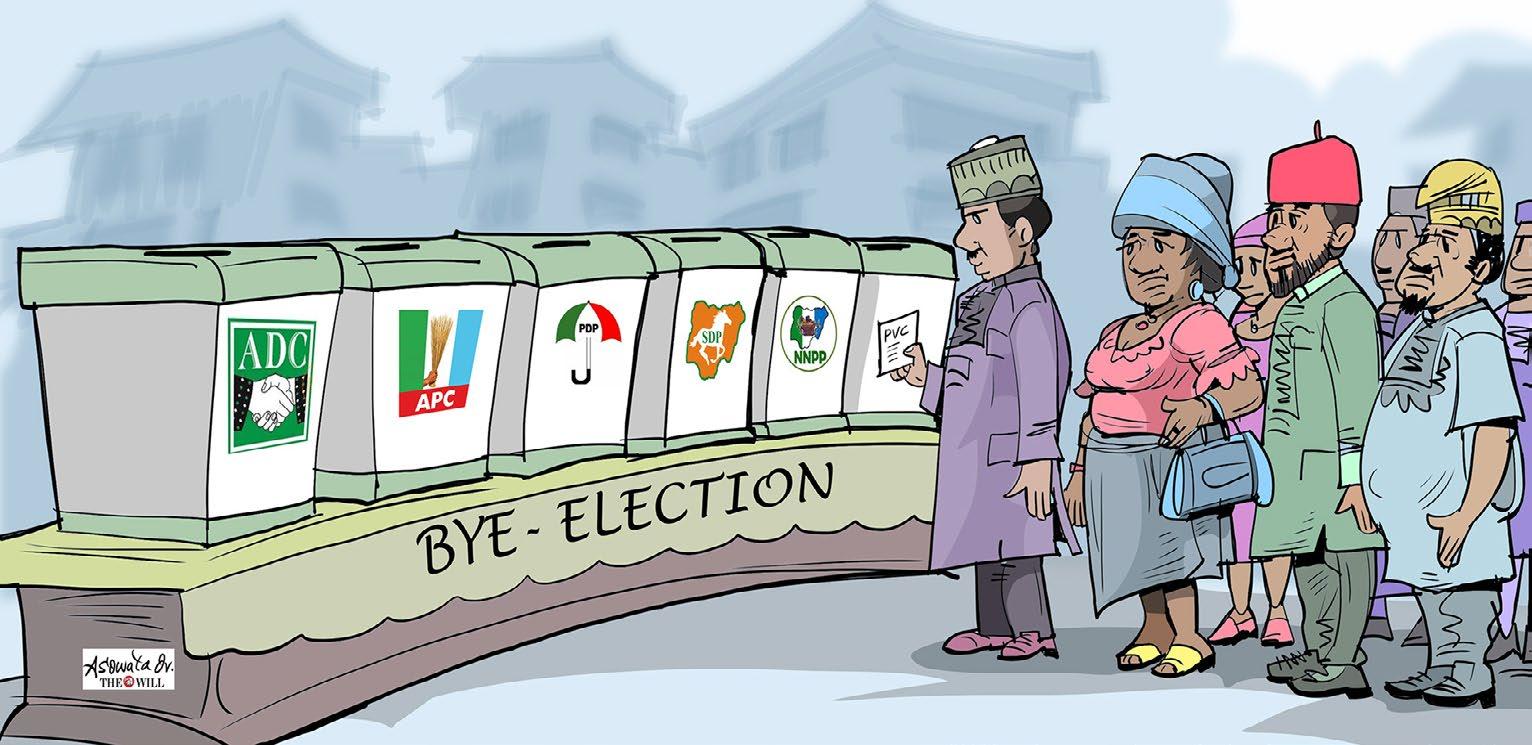


















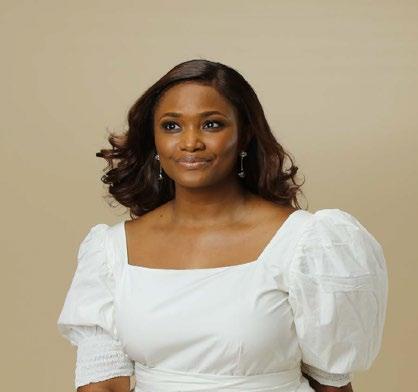
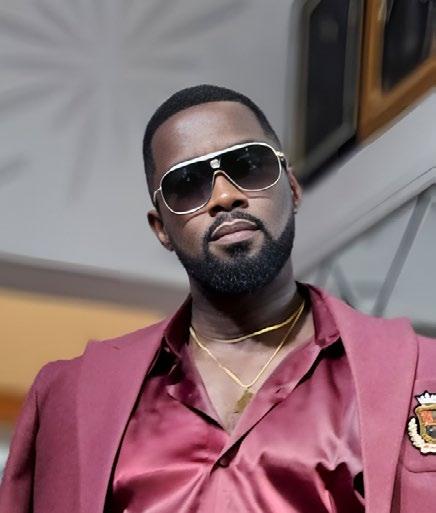



William Benson has been acting for a while, but it’s his stellar performance in the much-loved cybercrime movie, To Kill A Monkey, that brought him to the limelight. To deliver an outstanding performance, Benson arrives at every movie set empty, presenting himself as a tool in the hands of a painter— the director—to tell whatever story they want to tell. He also believes that he has to enjoy what he is doing for the audience to be able to enjoy it as well. Regarding his role in To Kill A Monkey, he had been evangelising and so missed four calls from the film’s director, Kemi Adetiba. It wasn’t until someone called asking why he hadn’t picked up her calls that he checked his phone and saw her missed calls. Talk about fate. He called her back, and as they say, the rest is history.
Read William Benson’s fascinating story on pages 8 to 10 of this week’s issue. You’ll love it.
Tank tops are a versatile wardrobe staple that never goes out of style. They can be styled in various ways to suit different occasions; that’s the beauty of a tank top. This week, our fashion pages—pages 4 and 5— highlight different ways to style a tank top to look chic.
Our choice of movie review this week is The Naked Gun. If this sequel is anything like the old Leslie Nielsen movies, then we are in for a rib-cracking time at the cinema. I must admit, I found it hard to imagine Liam Neeson as a comedy actor, but the reviews have been good, so I might head to the cinema (if I’m not working) this weekend. You should, too.
Until next week, enjoy your read.







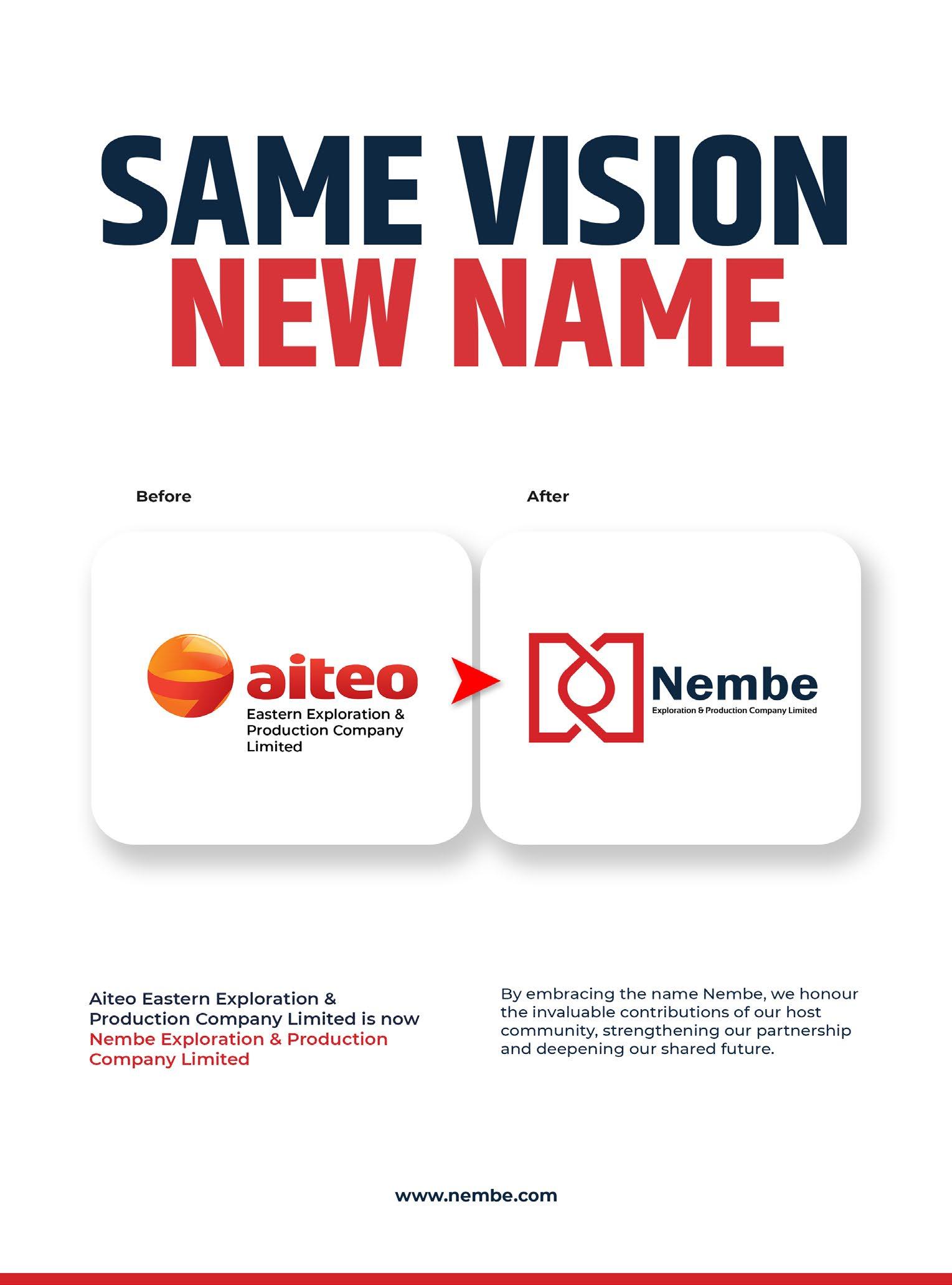
SUNDAY, AUGUST 17, 2025


SUNDAY, AUGUST 17, 2025
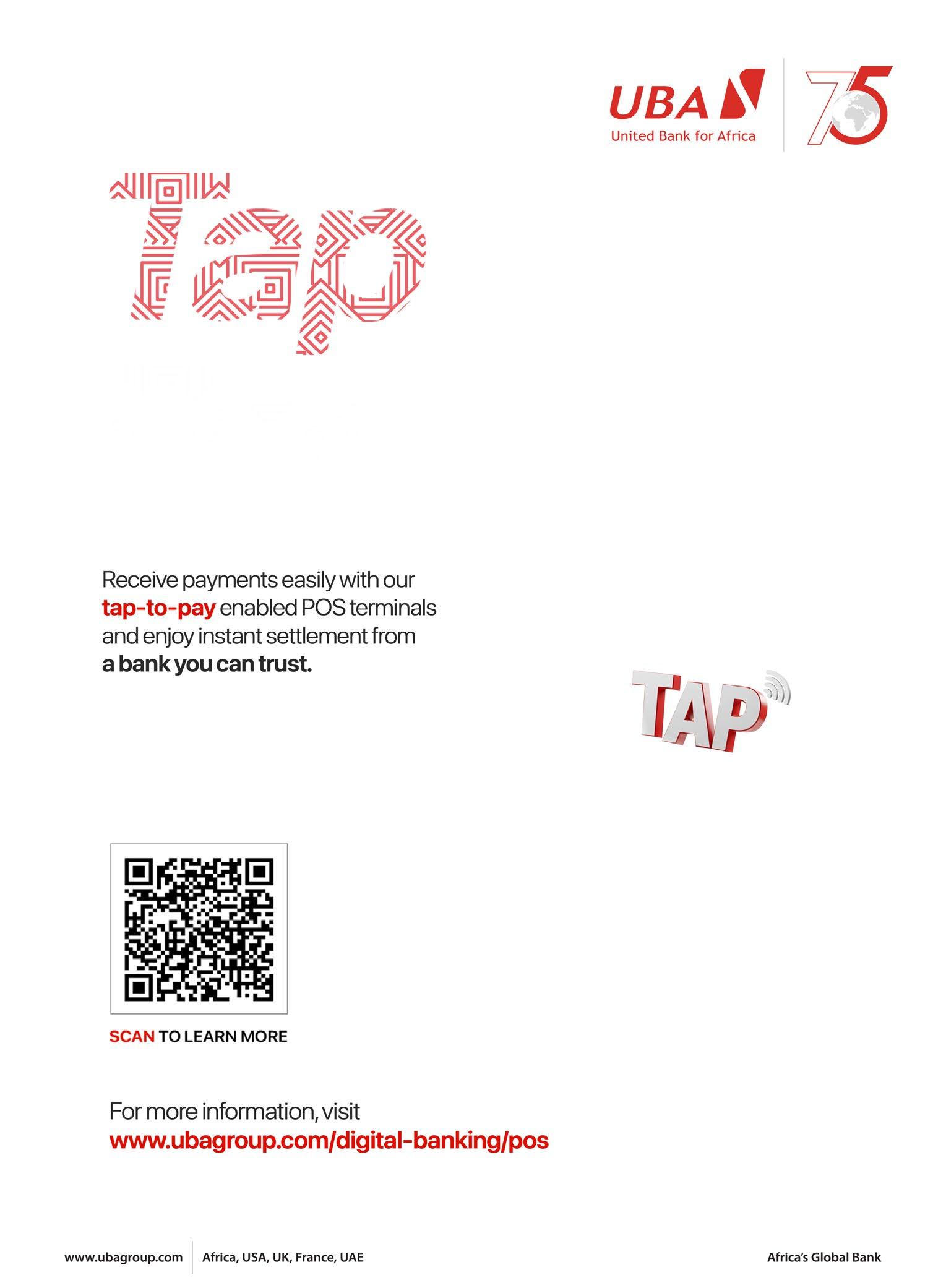

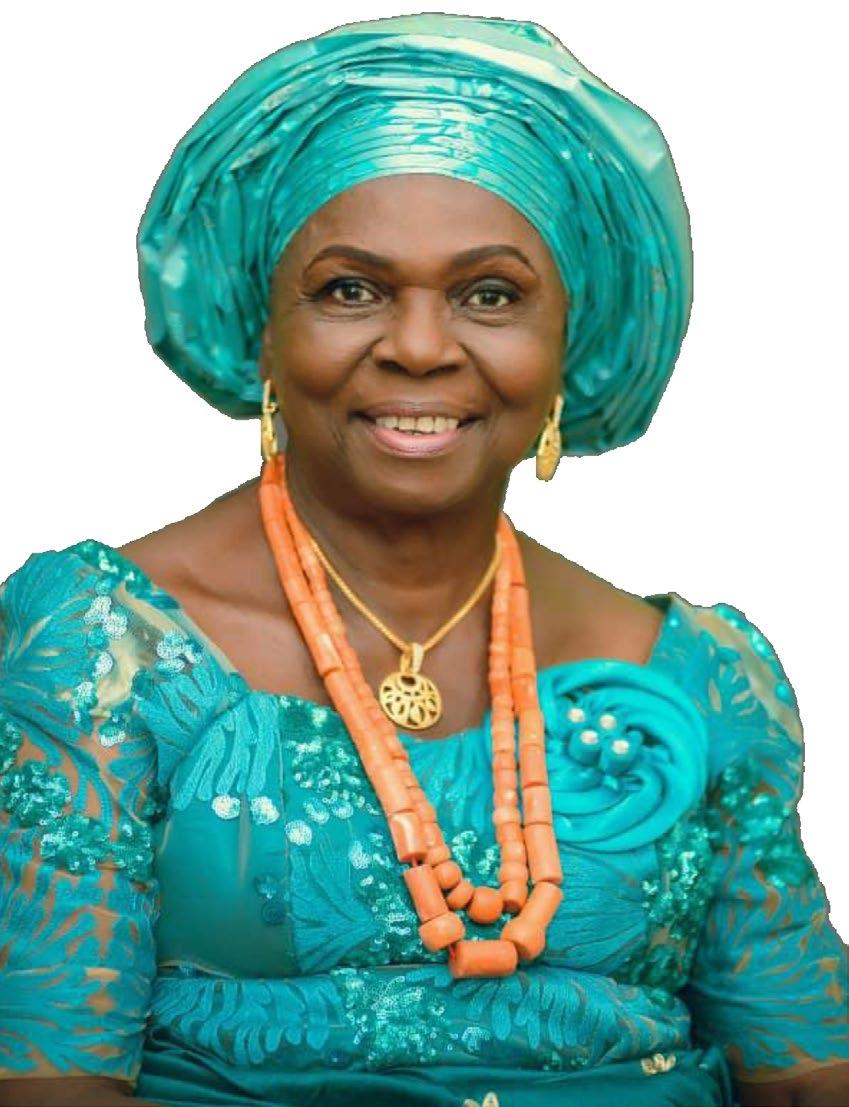

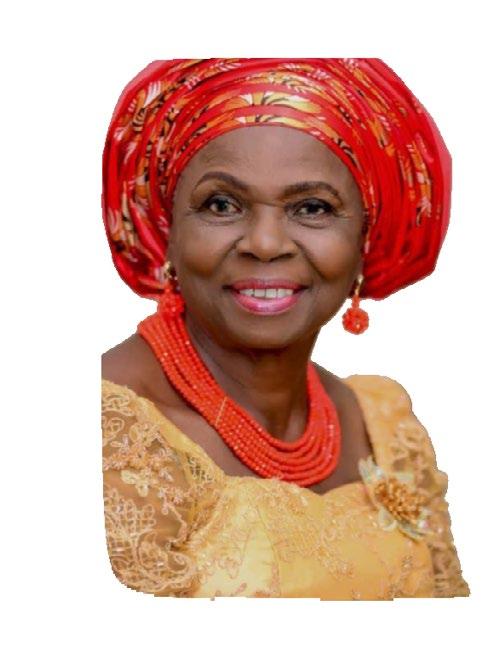

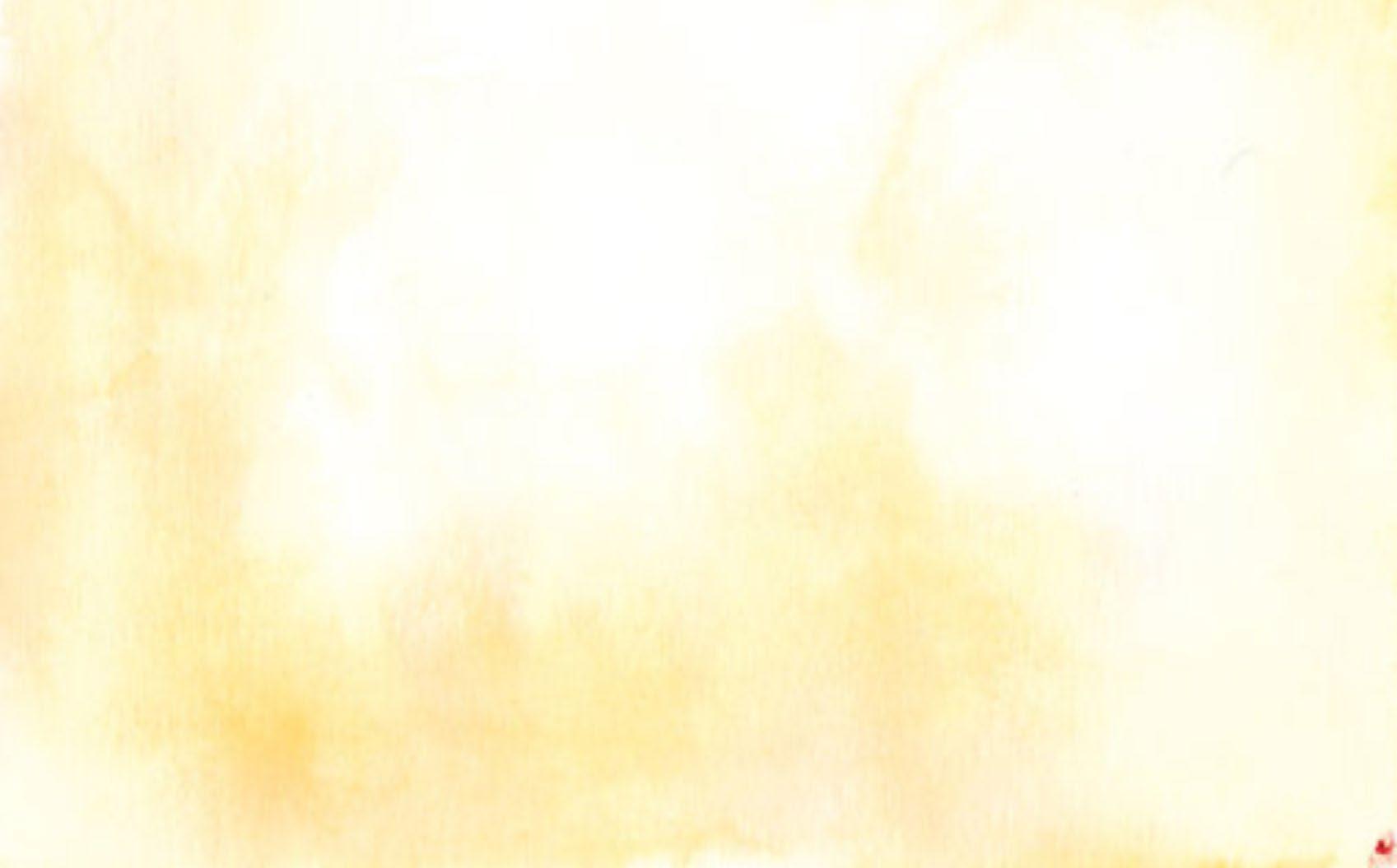




BY THEWILL EDITORS
Expectations of a major upset in Saturday’s by-election went up in smoke as the governing All Progressives Congress, APC, the major opposition Peoples Democratic Party, PDP and the New Nigeria Peoples Party, NNPP held on to their strongholds, while the African Democratic Congress, ADC, which had been making waves in the political landscape since it was adopted by a coalition of politicians on July 2, 2027, faltered.
Results so far uploaded on the Independent National Electoral Commission portal, IReV, as at press time showed that the two major political parties, APC, PDP and NNPP have won the election in their respective enclaves with significant margins. In Edo State where the election was held to fill certain positions left vacant, Governor Monday Okpebholo and his Deputy, Hon. Dennis Idahosa, the APC led its closest rival, the PDP with over 70 per cent of the uploaded results.
In Kano State, the governing NNPP swept the polls. Also, the All Progressives Grand Alliance, APGA, has maintained an early lead in the Anambra South Senatorial District poll with 97.83 per cent of results uploaded on the IRev portal.
Similarly, in the Ibadan North Federal Constituency results uploaded hundred per cent on the IRev portal, the PDP maintained a lead with the APC closely following.
The by-elections held in the Southwest, the President’s region, ADC’s win in either of the by-elections in Oyo, Ogun by-elections would improve the popularity of the party’s National Secretary, Ogbeni Rauf Aregbesola.
For Peter Obi who scored over 84.7 percent of votes cast in the South-East, the by-election in Anambra was also an acid test. In fact, the presidential candidate of the LP had to put out a message late Friday, tacitly endorsing the ADC candidate for the Anambra South Senatorial District, Donald Amamgbo when it became clear that INEC had rejected the Abure-led faction’s last minute manoeuvre to endorse LP candidates through a Nasarawa State High Court on Friday.
Obi, conveyed his endorsement of ADC candidates via his X handle: “Kindly note that because the Labour Party has no recognised candidates by INEC due to the internal crisis, I humbly urge every member of the Obidient and COPDEM families to go out and vote for the coalition political party, African Democratic Congress (ADC), in their respective states.” In Adamawa State, Atiku Abubakar’s home state, a federal constituency by-election was held in Ganye, with the PDP and ADA trading blame over vote buying. The outcome of the poll has shown that the old pattern remains.
WHERE INEC HELD THE POLLS
Ekiti states on Saturday, August 8, 2026, the challenges of votebuying, thuggery continue to cast a dark patch on the areas of fairness and transparency, more so when its officials were arrested for vote-buying.
As usual, vote-buying was recorded during the poll. While it was at the level of accusations in some areas, as it happened in Adamawa where the by-election took place in Ganye State Constituency, which reportedly witnessed a high voter turnout under the watchful eyes of security men, the governing PDP and rival APC, traded blame and accused one another of vote buying. Kaduna State recorded vote-buying in all its ugliness.
The Chairman of Ganye Local Government Area, Farouk Mohammed accused APC chieftains of “buying votes because their government has failed woefully, so they don’t have anything to tell Nigerians,” while the APC Adamawa State Organising Secretary, Mustapha Ribadu, also accused the PDP of vote buying during the by-election.” Security operatives in Kaduna arrested an alleged vote buyer in possession of N25,963,000.
The suspect, identified as Shehu Aliyu Patangi, was caught in the act around 3:30 a.m. by a combined team of the Nigeria Police Force and the Department of State Services , DSS, at a popular hotel along Turunku Road in Kaduna metropolis.

Ordinarily, the conduct of by-elections in 12 states across the country into the National and State Assemblies as a result of resignations or death presented no high stakes. But in the preceding days when the coming of the ADC, which has attracted defectors from the APC, PDP, and Labour Party, while the troubled PDP has restored some order, the permutations and calculations towards 2027 have assumed a different dimension.
For example, the heavyweights in the ADC come from zones and regions where their performance was expected to reset the calculations ahead of the 2027 general poll.
Former Kaduna governor, Nasir el-Rufai comes from the NorthWest geopolitical zone known to have delivered the majority of the northern votes that contributed to President Bola Tinubu’s victory in 2023. Two big states in the zone, Kaduna and Kano, featured by-elections.
National Commissioner and Chairman of Information and Voter Education Committee, Sam Olumekun confirmed the byeelections, caused by the resignation or death of serving lawmakers, took place in two senatorial districts in Anambra and Edo States; five federal constituencies in Edo, Jigawa, Kaduna, Ogun, and Oyo States; and nine state constituencies spread across Adamawa, Anambra, Kaduna (2), Kano, Kogi, Niger, Taraba and Zamfara States.
He said that court-ordered rerun elections in Enugu South 1 State Constituency of Anambra State and Ghari/Tsanyawa State Constituency of Kano State were also held on the same day.
VOTE BUYING, THUGGERY
INEC, for which the by-election was a test-run towards the governorship poll in Anambra State holding on Saturday, November 8, 2025, as well as the upcoming governorship poll in Osun and

Police spokesman, DSP Mansir Hassan, who confirmed the arrest said the suspect confessed to the crime and pleaded for leniency. “He confessed to the crime and begged for mercy. We wish to reiterate that anyone found attempting to undermine the electoral process will face the full wrath of the law,” DSP Hassan said.
In Iperu-Remo, Ikenne Local Government Area in Ogun State, two INEC officials and some politicians were arrested by security men who disclosed that intelligence showed that the Commission’s staff had earlier been contacted and given a large sum of money by party officials for vote buying during the by-election.
During interrogation, one of the INEC officials, a man who gave his name as Toryem Joe-Stans and the other a woman, who gave her name as Mandara Amina, claimed that their constituency supervision directed them to collect the money from a politician holed up in a hotel where three other accomplices were eventually
arrested. The collaborators gave their names as Jonathan, Akeem Oyinlola and Bayo Ogunje, who said he was a state official of the PDP.
In a swift reaction, Director of Media and Communications of the PDP, Asiwaju Akinloye Bankole, told journalists that the party officer was arrested around 3:30am by security operatives who allegedly broke into his hotel room in what he described as a “commandostyle operation”. The PDP officer was in his hotel room relaxing with his driver and an aide when he was whisked away, Bankole claimed, adding that it was a ploy by the authorities to disqualify the party's candidate “He had only N100,000 in his room. No electoral material was discovered in his hotel room or car.
Meanwhile, the Ogun State Commissioner of Police, Lanre Ogunlowo, said the command is investigating the purported arrest of Tella and two INEC staff with a huge amount of money suspected to be for vote buying in the ongoing Remo Federal constituency byelection. Ogunlowo said: “We are investigating the matter. That’s how much I can say for now."
In Kano, the Police Command confirmed the arrest of 288 suspected thugs during the ongoing by-election in the Bagwai/Shanono and Ghari/Tsanyawa Federal Constituencies. The election was to produce a replacement for Halilu Kundila, a member of the Kano State House of Assembly, who died during a brief illness. According to the Commissioner of Police, Alhaji Ibrahim Bakori, speaking to the News Agency of Nigeria, NAN, the election was marred by violence, with thugs allegedly hired to disrupt proceedings. He said that eligible residents were afraid to come out and exercise their civil rights due to the presence of thugs wielding dangerous weapons, who were seen intimidating voters. He also said the thugs’ actions therefore made it difficult for many eligible voters to participate in the electoral process.
Following the police report, the APC called for the cancelation of the poll and a rerun. The party's National Publicity Secretary, Felix Morka, on Saturday, said the elections were marred by “extreme violence and disruption by armed thugs across several polling units” in the affected areas.
Morka said, “Verifiable reports from Shanono and Bagwai Local Government Areas and Ghari constituency have voters fleeing polling areas, with deployed security personnel overwhelmed by the violence, making the prospects of a credible election impossible.” Bolarinwa Olowole, PDP candidate in Ogun State, said the thugs chased away voters and party agents.
In Edo State where the poll conduct was to fill the vacant senatorial seat following Okpebholo’s emergence as Governor of Edo State, the election was generally peaceful except for selected cases of BVAS malfunction, as observed by the governor after voting even at Ward 2 Polling Unit 1 in Udomi Primary School in Esan Central Local Government Area. Also the House of Representatives seat vacated by Deputy Governor Dennis Idahosa was also in contention in Ovia South West and Ovia South East Federal Constituencies
The PDP, however, disagreed with the governor on the peaceful conduct of the poll. The party state Chairman Tiny Aziegbemi alleged that “Governor Okpebholo, assisted by Governor Hope Uzodinma of Imo State “ effectively invaded Edo State to personally coordinate the assault on democracy.”
In Ovia Southwest, PDP House of Representatives candidate, Destiny Enabulele alleged that thugs, as early as 6:am invaded his father’s house and intimidated PDP members and later assaulted him after he cast his vote.
In Anambra State, where the bye-election was to fill the vacant position for the Onitsha North 1 constituency in the state House of Assembly, left vacant by Hon. Justice Azuka, who was kidnapped and killed, voter turn -out was low in the poll hotly contested by the candidates of the traditionally dominant political parties in the state, namely, the governing All Progressives Grand Alliance, APGA, the Young Progressives Party, YPP, APC and the new ADC.
interpretation of the Supreme Court judgement of April12, 2025, which nullified the judgements of the two lower courts on the premise that they lacked the jurisdiction to dabble into the domestic affair of the LP by validating Abure’s claim to the national chairmanship position, INEC, had since withdrawn the earlier recognition of Julius Abure led National Working Committee, NWC, and rejected its candidate for the by-election.
The Social Democratic Party, SDC, narrowly, escaped the same fate on Friday, a day to the poll. The Independent National Electoral Commission, INEC had to include the candidates of the party in the Saturday by-election.
INEC, which had excluded the party from the race on the grounds that the SDP did not submit a valid notice for the conduct of primaries for the bye-elections, had to include its candidate on Friday in obedience to an order by the Federal High Court, Abuja Division, in Suit No.FHC/ABJ/CS/1525/2025 to include SDP in the election taking place in 12 states. Olumekun, National Commissioner and Chairman, Information & Voter Education Committee of INEC said the commission has decided to obey the order.
He said, “In compliance with the judgement, the names of the candidates submitted manually have been accepted and published on our website. The party will participate in the bye-elections.
“The Commission wishes to assure the public, especially voters in the 12 States, that the 11th-hour judgement will not affect the election which will proceed tomorrow Saturday 16th August 2025 as scheduled. Meanwhile, the Commission will exercise its legitimate right of appeal under the law”, the statement added.
The LP was unfortunate. A ruling reportedly obtained by the Aburefaction from the Nasarawa State High Court to compel INEC to grant the party access to its code for the uploading of the names and particulars of the faction’s nominated candidates for the by-election became a subject of renewed rivalry between the party’s factions.
While the Abure-led faction was celebrating the judgement, the Senator Usman Nenadi accused him of “forum shopping,” another euphemism for fraud. She maintained that the matter was within the competence of the Federal High Court and pointed out that the referenced judgement.
Ken Asogwa, Special Media Adviser to Nenadi, in its reaction to the ruling, said, “Even if in the unlikely event, this inconsequential order was genuinely obtained, Abure’s decision to engage in blatant forum shopping – running to a Nasarawa State High Court in a matter over which the Federal High Court has exclusive constitutional jurisdiction – underscores the depth of his legal and moral bankruptcy.
He further said that since INEC is a federal institution established by the Constitution, the High Court of Nasarawa State has no lawful standing in this matter.
“Such abuse of the judicial process ought to attract a stern reprimand from the court against the forum shoppers.” SDP escaped because its ruling was upheld by the Federal High Court.
In fact, on Friday, August 15, 2025 INEC officially withdrew recognition of Julius Abure as the National Chairman of the Labour Party (LP), citing the expiration of his tenure and the binding judgment of the Supreme Court delivered on April 4, 2025.
According to the electoral umpire, a sworn counter affidavit filed at the Federal High Court, Abuja, has effectively settled the lingering leadership crisis in the LP.
“ Security

intimidate ADC members, particularly after the arrival of the party’s National Secretary, former Osun State Governor, Rauf Aregbesola. Its candidate for the Ikenne/Sagamu/Remo North Federal Constituency is Hon Barrister Oluwaseyi Solomon Osho. Police Public Relations Officer, Omolola Odutola denied any complicity on the part of the police and said that in its bid to ensure a violence-free and fair election, the state police command collaborated with other security agencies, and additional manpower from Zone 2 Command, Lagos.
Former Kaduna governor, Nasir el-Rufai made similar allegations in the Northeast state alleging that the state government recruited 4000 thugs and bribed INEC officials to manipulate the result in its candidate’s favour.
The by-election held high stakes for some. In Oyo State, for instance where the incumbent governor is eying the Presidency on the platform of the PDP and the Minister of Power, Adebayo is already preparing to run for the governorship on the platform of APC, it was a show of power. The Minister came to the state with a compliment of the House of Assembly members, three APC Senators and 12 of 14 APC House of Representatives.
SECURITY

In Oyo State, where the poll held in Ibadan North Federal Constituency in replacement of the late House of Representatives, Olajide Akinremi of the APC, the party’s candidate, Adewale Olatunji, told reporters that from reports reaching him, voter apathy was the only low point of the election that was peaceful.
WHY LP WAS EXCLUDED
Among the prominent parties out to prove a point ahead of the 2027 general election- APC, PDP, LP, ADC and SDP, - the LP and SDP faced legal hurdles until the latter managed to get into the race through a court order.
Due to the unresolved crisis in the Labour Party, LP, with two factions claiming leadership of the party, following their selective
operatives in Kaduna arrested an alleged vote buyer in possession of N25,963,000. The suspect, identified as Shehu Aliyu Patangi, was caught in the act around 3:30 a.m
Ahead of the poll, the Inspector-General of Police (IGP), Kayode Egbetokun, on Friday ordered watertight security in the affected states to provide an enabling environment for free and fair elections.
Force Public Relations Officer (FPRO), Deputy Commissioner of Police (DCP) Olumuyiwa Adejobi, explained that the Police boss had ordered the restriction of all forms of vehicular movement on roads, waterways and other means of transportation, from 12 a.m. to 6 p.m. on election day within the affected local government areas, with the exception of those on essential services, including INEC officials, accredited media and electoral observers, ambulances responding to medical emergencies, and firefighters.
The IGP also reiterated the ban on all security aides to VIPs and escorts from accompanying their principals and politicians to polling booths and collation centres during the election. Stateestablished and state-owned security outfits, quasi-security units, and privately owned guards were also barred from participating in election security management.



After nearly a decade of legal siege, £50 million worth of prime London properties have been released from UK court restraints, marking the end of one of the most politically charged property battles to cross continents.
THE POLITICAL SPARK IN ABUJA
The saga began during Nigeria’s tense 2015 election season, when billionaire businessman Benedict Peters was actively engaged in the democratic process, championing civil liberties, a free-market economy, public accountability, and Christian values nationwide. After the election brought a change in administration, the political climate shifted noticeably. Analysts noted that some prominent business figures who maintained independence from the new power structure appeared to face heightened scrutiny.
Reports from Nigerian and international rights groups — including Amnesty International and Human Rights Watch — raised concerns over selective political witch hunts and documented allegations of human rights violations, underscoring the increasingly complex intersection of politics, commerce, and fundamental freedoms.
Even after that era of leadership ended, no formal charges of personal corruption were ever brought in the UK against any of that administration’s officials, despite a plethora of allegations and multiple corruption scandals reported at the time. While the UK repatriated millions of pounds linked to convicted former state officials, it never pursued figures from the succeeding government on similar grounds, even as questions lingered over alleged misuse of office and systemic graft amounting to billions of pounds. Against this backdrop of selective inaction, the wave of astonishingly targeted pressure on the pan-African businessman stands out — and it is that wave which set this story in motion.
LAWFARE LANDS IN LONDON


By 2016, the conflict had leapt borders. At Nigeria’s request, the UK’s Crown Prosecution Service (CPS) obtained restraint orders over three London properties and multiple bank accounts, claiming that the real estate was not truly the energy magnate’s but rather belonged to then–Petroleum Minister Diezani AlisonMaduekwe. The sweep of the orders was so broad that much of what was frozen had no connection whatsoever to the allegations on which the case was built.
The basis for the CPS’s argument? The minister had on extremely rare occasions used one of the properties for official meetings during London visits — never overnight, and never as a residence. There was no deed, no transfer, no ownership record. Yet this sliver of “use” was treated as proof of ownership — a legal logic that, applied consistently, would implicate half of Westminster.
But property was only part of the fight. As the proceedings dragged on, prosecutors widened their focus beyond real estate, reaching into the billionaire businessman’s personal life and charitable giving — territory that had nothing to do with the original allegations.
PHILANTHROPY ON TRIAL
And yet, in London’s courtrooms, the CPS went further still. The energy magnate’s long-standing generosity became a quiet but loaded subplot. Over decades, he had given millions of pounds to churches and ministries across Africa and overseas — in Nigeria, to the Christian Way of Life Church and its community outreach; in the UK, to the Apostolic Pastoral Congress to save a historic church that was facing sale and closure. The panAfrican energy mogul, a committed believer, has long opposed the repurposing of sacred spaces, seeing it as
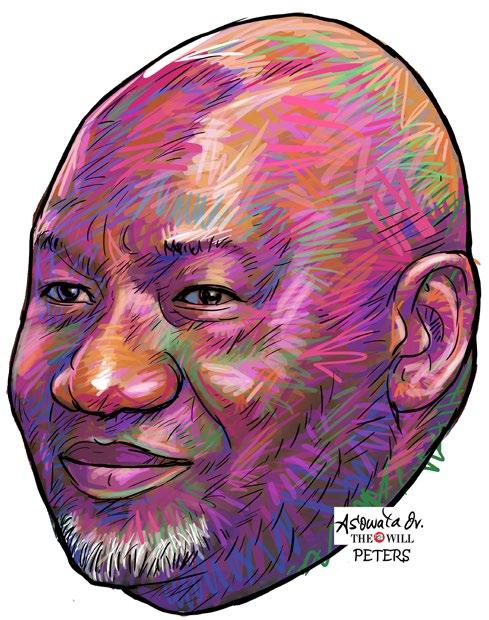
part of a wider erosion of faith in public life.
These donations, totaling several million pounds, were made years before any of the events at issue and were widely known in faith circles. One of the bishops within the Congress happened to be related to the former Nigerian minister — enough, in the eyes of British prosecutors, to insinuate bribery. His legal team called it “a baseless smear,” stressing that the billionaire businessman is one of the largest private funders of Christian ministry not just in Africa, but worldwide. “Can a man bribe God? Is it possible?” one aide asked. “If a wealthy donor contributes to the UK Prime Minister’s Ukraine rehabilitation fund, does that mean he seeks political favor? Or is it simply charity?”
The backdrop makes the accusation even more jarring. Across Britain, sacred spaces have been quietly vanishing for years. Hundreds of church buildings have been deconsecrated, sold, and repurposed — into pubs, nightclubs, flats, even luxury spas. In London, a former Methodist church now hosts weekend raves; in another borough, a Victorian chapel serves cocktails under stained glass. While the Church of England acknowledges that some closures are inevitable amid falling attendance, for millions of believers the sight of altars replaced by bar counters and pulpits turned into DJ booths has become a potent symbol of faith’s retreat from public life. It is against this background that his philanthropy was called upon.
In this climate, those who use their wealth to preserve churches and strengthen Christian witness are not just swimming against the tide — they are, at times, met with suspicion or hostility. For the energy magnate, that resistance became more than cultural; it became legal. “This was an incredible attempt to weaponize religious giving, dressing it up as brittle circumstantial evidence,” said Andrew Onyearu, his chief legal counsel. “It was a calculated distortion — crafted solely to mislead, smear, and cause harm without plausible proof.”
That line of attack stood in stark contrast to how far more lavish perks and gifts given to political figures and their families in other countries have been treated — often without suspicion, let alone prosecution.
The double standard was stark. For years, the former minister’s son regularly watched Premier League’s elite matches from VIP premium boxes — seats costing anywhere from single to double digit thousands of pounds — yet no one ever publicly asked who had paid for them. He is not alone; children of other politicians in the UK and abroad have enjoyed similar access. More broadly, politicians and their families around the world have accepted high-value perks without attracting the kind of intense scrutiny that the billionaire businessman ultimately faced.
In the United States, Hunter Biden received a multicarat diamond from Chinese energy tycoon Ye Jianming after a private meeting — a gift valued in the tens of thousands of dollars. In South Africa, Duduzane Zuma, son of then-President Jacob Zuma, benefited from the Gupta family’s largesse, including a $1.3 million luxury apartment in Dubai’s Burj Khalifa and fivestar vacations. In Australia, Prime Minister Anthony Albanese reportedly received years of free Qantas airline upgrades worth hundreds of thousands, and later secured a Chairman’s Lounge membership for his son — granting VIP lounge access and complimentary upgrades worth tens of thousands more.
In the UK, reports show that Prime Minister Keir Starmer accepted over £100,000 in gifts and hospitality, including luxury clothing and accommodation for his family, as well as free tickets to concerts and Premier League football matches — some of which went to his son. Boris Johnson accepted expensive holidays and hospitality from wealthy donors while in office, declared them, and moved on without legal fallout. The British Royal Family routinely receives lavish gifts from foreign heads of state — from gold and jewels to rare artworks — logged as official but never treated as improper.
Even beyond politics, other high-profile public figures receive substantial benefits without triggering legal consequences. In the United States, billionaire Harlan Crow paid private school tuition amounting to tens of thousands of dollars for the grandnephew of Supreme Court Justice Clarence Thomas and hosted him on luxury trips — gestures that supporters have described as personal generosity.
These examples span a wide spectrum — from the purely charitable to those that might cause the public to raise an eyebrow — yet in none of these cases were the recipients dragged through years of legal siege. Against that backdrop, it is striking that the pan-African billionaire’s decades-old, openly made charitable donations to preserve a church and a short-term
Continues on page 12
By mid-2024, the CPS’s shifting theories collapsed under judicial scrutiny. Judges noted the complete absence of evidence linking the properties to the Nigerian minister. The restraints were lifted “

Chairman/Chief Executive Officer of NDLEA, Brig. Gen. Mohammed Buba Marwa (Rtd) and Minister of Agriculture and Food Security, Abubakar Kyari, during a working visit to the Minister in Abuja, on Thursday, August 14, 2025.

BY FELIX IFIJEH
The Federal Ministry of Agriculture and Food Security has assured the National Drug Law Enforcement Agency (NDLEA) of its readiness to support ongoing drug control efforts by the agency in creating alternatives for illicit drug producers and providing agricultural opportunities for drug users undergoing rehabilitation to prevent them from relapse.
Minister of Agriculture and Food Security, Abubakar Kyari, gave the assurance in his response to the remarks by the Chairman/Chief Executive Officer of NDLEA, Brig Gen Mohamed Buba Marwa (Rtd), who led some members of his management team into a meeting with the minister and top officials of the ministry in Abuja on Thursday.
Marwa had told the minister that the Renewed Hope Agenda of President Bola Tinubu has food security and national security as part of its focus, adding that “we really cannot tackle national security without adequate attention to drug control because they are interlinked.”
He said the visit was to seek collaboration between NDLEA and the Ministry of Agriculture and Food Security as part of ongoing efforts to surmount the
challenge of the drug scourge facing the country.
According to the NDLEA chairman, out of the 14.3 million drug users in Nigeria, 10.6 million of them abuse cannabis alone, making the psychoactive substance the most commonly abused in the country.
“As you know, cannabis is not only smoked, it is also eaten. They make soup with it. They mix it with hot drinks to produce monkey tail. They take it in all kinds of forms. Every week, we make arrests. And still, they keep at it, because there's so much money in the business. And so, we sat down and reflected and felt that there's a more permanent solution to this, especially with the growers of cannabis,”
Marwa said, adding that, “So, we have decided to create another platform called Alternative Development, which seeks to persuade cannabis growers to change from growing cannabis, which is illicit, to something legitimate and licit. This will give them at least a legitimate source of income. They will be able to sleep with their two eyes closed. Instead of always being in fear of arrest by NDLEA, they will live respectable lives with their families and their communities. We looked at the possibility
of getting them to grow food crops, including the artemisia annua plant, which can fetch the country $100 billion annually. They call it sweet wormwood. The derivative is used for the treatment of malaria. We consulted with IITA, and they actually confirmed that they have grown samples across the country. They have done some trials. And it seems to have a very positive outlook.
In his response, the minister agreed that there is a direct correlation between drug abuse and other forms of criminality, noting that if nothing is done urgently by all stakeholders, the country may be breeding criminals instead of the next generation of leaders.
“So, we should join hands, and this is the collaborative effort that President Tinubu has already mandated us to do in terms of not only achieving food security, employment, job creation, but improvement of livelihood, inclusivity of youth and women in agriculture, access to capital and credit, and so on and so forth.
Marwa and Kyari agreed to set up a technical committee that will work on the details of the collaboration.
Continued from page 11
advance of just under £7,000 returned to him within 24 hours — acts of faith-driven philanthropy with no personal enrichment — were recast in London’s courts as if they belonged in the same conversation.
OUTSOURCED REPRESSION
and mortar but independence itself: “This was about sending a message — that your faith, your refusal to play politics as usual, can cost you everything.”
BUILDING WHERE OTHERS TEAR DOWN
THE TURNING POINT
To political scientists, the London proceedings were more than a legal aberration — they were an export of Abuja’s vendetta. “If you can’t jail your opponent at home, you tie them up abroad,” said one Nigerian professor based in London, speaking on condition of anonymity for fear of retribution, who specializes in the cross-section of religion and international affairs and works at a prestigious British university.
“The real tragedy is when respected jurisdictions allow themselves to be manipulated in this way.” She underscored that the target was never just bricks
Ironically, while fighting to unfreeze his assets, the billionaire businessman was investing through his oil and gas group, Aiteo, and his vertically integrated mining company, Bravura, in projects that aligned directly with UK strategic priorities — developing African supply chains for cobalt, lithium, and manganese critical to electric vehicles and renewable energy, expanding electricity access across underserved regions, and boosting agricultural security in areas hit hardest by climate shocks. “The paradox is that Britain was undermining someone who was strengthening the supply lines they say they want secured and enhanced,” his lawyer said.
By mid-2024, the CPS’s shifting theories collapsed under judicial scrutiny. Judges noted the complete absence of evidence linking the properties to the Nigerian minister. The restraints were lifted. “This was never just about property,” the businessman said. “It was about principle. You cannot allow politics to dictate the law, and you cannot let faith be treated as a liability.”
A BROADER WARNING

The victory is more than personal. It warns that when “occasional use” by an official can be spun into ownership, property rights are at risk for anyone. And in an age when Christianity is increasingly being pushed to the margins of public life, it is also a reminder that sovereignty, property rights, and freedom of belief often stand or fall together.


L-R: Minister of Information and National Orientation, Mohammed Idris; Gov Peter Mbah of Enugu State; Special Adviser to the President on Information and Strategy, Bayo Onanuga; Director General, National Orientation Agency, Lanre Issa-Onilu; Director General, Nigerian Television Authority, Salihu AbdulhamidDembos; Senior Special Assistant to the President on Strategic Communications, Linda Nwabuwa-Akhigbe and Managing Director News Agency of Nigeria, Ali Muhammad-Ali, during a working tour of on-going projects in Enugu on August 14, 2025.
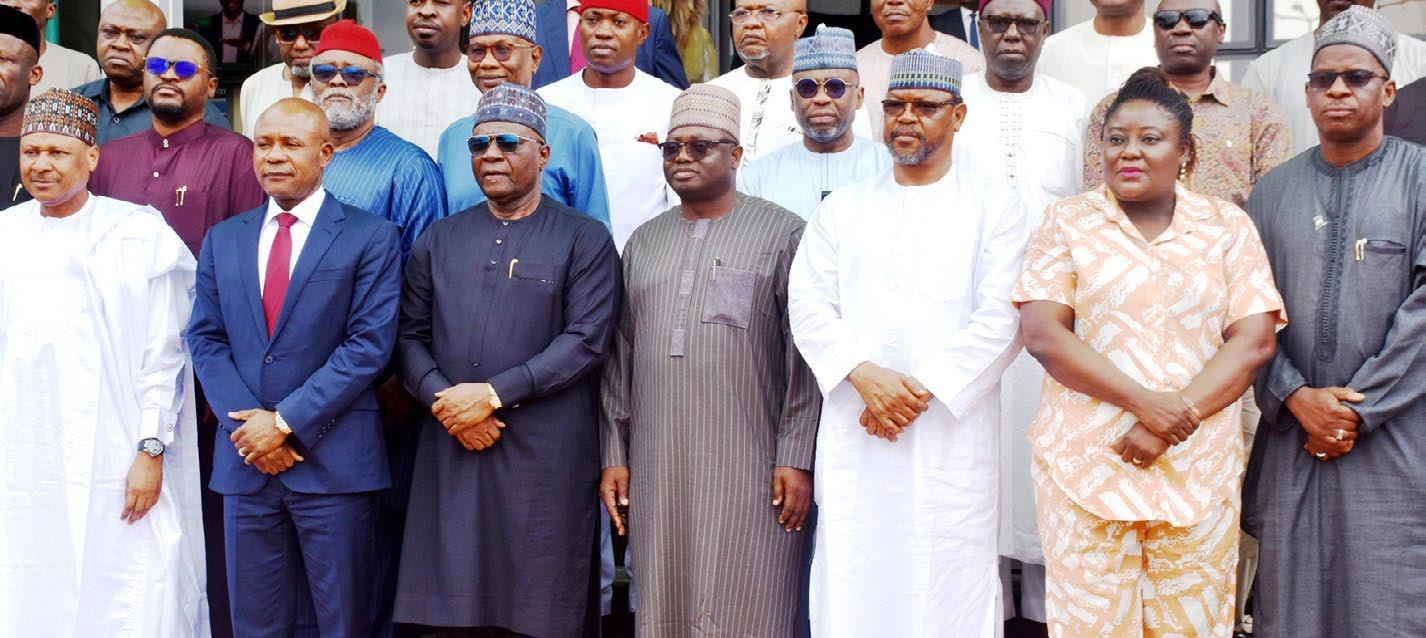
he United States has approved Nigeria’s request to purchase ammunition, precision bombs, and rockets worth an estimated $346 million.
A statement by the Defence Security Cooperation Agency (DSCA), said the deal, involving contractors Lockheed Martin, RTX Missiles and Defence, and BAE Systems, among others, was certified to Congress following approval by the State Department.
The statement highlighted the package to include: 1,002 MK-82 general-purpose 500 lb bombs; 1,002 MXU-650 Air Foil Groups for 500 lb Paveway II GBU-12; 515 MXU1006 Air Foil Groups for 250 lb Paveway II GBU-58; 1,517 computer control groups for Paveway II GBU-12/GBU58; 1,002 joint programmable fuzes; and 5,000 Advanced Precision Kill Weapon System II all-up rounds, comprising guidance sections, high-explosive warheads, and rocket motors.
The deal also includes non-major defence equipment such as additional fuzes, bomb components, impulse cartridges, practice rockets, integration support, test equipment, technical and engineering services, as well as

BY FELIX IFIJEH
Two terror kingpins of the Ansaru group, Mahmud Muhammad Usman, a.k.a. Abu Bara’a/Abbas/Mukhtar, and his deputy, Mahmud al-Nigeri, a.k.a. Mallam Mamuda, have been arrested by security forces during a high-risk intelligence operations.
The National Security Adviser (NSA), Nuhu Ribadu, disclosed this on Saturday while briefing Journalists on the recent successes recorded by Nigeria in the ongoing efforts to decisively rid the country of terrorist groups.
“Today, I am glad to inform you that we have successfully concluded a high-risk, intelligence-led, counter-terrorism operation, which led to the capture of the top leadership of Jama’atu Ansarul Muslimina fi-Biladis Sudan, commonly known as ANSARU, Nigeria’s Al-Qaeda affiliate. The two men, who are wanted internationally, are currently in custody”, he said.
The two men, who have been on the wanted list of security forces, were arrested during a targeted operation, conducted between May and July 2025.
According to the NSA, both men jointly spearheaded multiple attacks on civilians, security forces, and critical national infrastructure.


other logistical and programme support elements.
According to DSCA, the proposed sale would advance U.S. foreign policy and national security objectives by strengthening Nigeria’s ability to counter current and future threats, particularly in operations against terrorist organisations and efforts to curb illicit trafficking in Nigeria and the Gulf of Guinea.
It added that Nigeria would have no difficulty integrating the munitions into its armed forces and that the sale would not alter the basic military balance in the region.
The statement partly read: “The Government of Nigeria has requested to buy one thousand two (1,002) MK-82 general purpose 500 lb bombs; one thousand two (1,002) MXU-650 Air Foil Groups (AFGs) for 500 lb Paveway II GBU-12; five hundred fifteen (515) MXU-1006 AFGs for 250 lb Paveway II GBU-58; one thousand five hundred seventeen (1,517) MAU-169 or MAU-209 computer control group (CCG) for Paveway II GBU-12/GBU-58; one thousand two (1,002) FMU-152 joint programmable fuzes; and five thousand (5,000) Advanced Precision Kill Weapon System II (APKWS II) all-up-rounds (AURs) (consisting of one each WGU-
59/B guidance section (GS); high-explosive warhead; and MK66-4 rocket motor). The following non-MDE items will also be included: FMU-139 joint programmable fuzes; bomb components, impulse cartridges, and highexplosive and practice rockets; integration support and test equipment; U.S. Government and contractor technical, engineering, and logistics personnel services; and other related elements of logistical and program support. The total estimated program cost is $346 million.
“This proposed sale will support the foreign policy goals and national security objectives of the United States by improving the security of a strategic partner in SubSaharan Africa.
“The proposed sale will improve Nigeria’s capability to meet current and future threats through operations against terrorist organizations and to counter illicit trafficking in Nigeria and the Gulf of Guinea. Nigeria will have no difficulty absorbing these munitions into its armed forces.
“The proposed sale of this equipment will not alter the basic military balance in the region."
Ribadu said Usman, the self-styled Emir of Ansaru, is the coordinator of various terrorist sleeper cells across Nigeria, and also the mastermind of several high-profile kidnappings and armed robberies used to finance terrorism over the years.
He added that al-Nigeri, Abu Bara’s proclaimed Chief of Staff and deputy, is the leader of the so-called “Mahmudawa” cell hiding out in and around the Kainji National Park, straddling Niger and Kwara States up to Benin Republic.
Trained in Libya between 2013 and 2015 under foreign jihadist instructors from Egypt, Tunisia, and Algeria, Mamuda is a specialist in weapons handling and IED fabrication.
Ribadu further explained that the Ansaru group, which emerged as a splinter faction from Boko Haram, positioning itself as a “humane alternative", was first formed in January 2012 with a public declaration in Kano. However, according to the NSA, its stated aim quickly turned to attacking Nigerian security operatives, civilian communities and government infrastructure.
“The group publicly displayed the setting sun logo of Al-Qaeda in the Islamic Maghreb (AQIM), signalling its ideological and operational alignment with global jihadist movements”, he said.

Ribadu added that Ansaru had over the years entrenched itself in both urban sleeper cells and forest enclaves, across several cities in northern Nigeria and in forestbased enclaves particularly around Kainji National Park, straddling Niger and Kwara States as well as Benin Republic.
According to the NSA, some of the operations of the group include the 2022 Kuje Prison jailbreak, the attack on the Niger uranium facility, the 2013 abduction of French engineer, Francis Collomp, in Katsina, and the May 1, 2019 kidnapping of Alhaji Musa Umar Uba (Magajin Garin Daura).
“They were also behind the abduction of the Emir of Wawa and they maintain active links with terrorist groups across the Maghreb, particularly in Mali, Niger and Burkina Faso”, he added.
The Minister of Information and National Orientation, Mohammed Idris, urged the citizens to support the government to make the country safer for economic growth and development. He also urged the media not to be swayed by terrorists’ propaganda, noting that terrorism drives on publicity.
BY FELIX IFIJEH
Divergent views have continued to trail a ruling by a Federal Court of Canada classifying the governing All Progressives Congress, APC, and the major opposition Peoples Democratic Party, PDP, as terrorist organisations.
Coming on the heels of a June 17, 2025 judgement by Justice Phuong Ngo upholding an earlier decision of the Immigration Appeal Division that denied asylum to Nigerian national Douglas Egharevba over his decade-long affiliation with the PDP and APC, the reactions reflect a range of positions According to Court records, Egharevba was a PDP member from 1999 to 2007 before joining the APC until 2017, when he relocated to Canada and disclosed his political history.
From the records in the Canadian court filings, the Minister of Public Safety and Emergency Preparedness argued that the two parties were implicated in political violence, democratic subversion and electoral bloodshed citing, among other incidents, the PDP’s alleged conduct in the 2003 state elections and 2004 local government poll, which reportedly involved ballot stuffing, voter intimidation, and the killing of opposition supporters.
The IAD concluded that party leadership benefited from the violence and took no action to stop it, meeting Canada’s legal definition of subversion under paragraph 34(1) (b.1) of the Immigration and Refugee Protection Act (IRPA).
Justice Ngo affirmed that under paragraph 34(1)(f) of the IRPA, “mere membership of an organisation linked to terrorism or democratic subversion” could trigger inadmissibility — even without proof of personal involvement.
In a rather telling manner, the Federal Government and the APC and PDP handled the matter from different prisms.
Arguing that the Court made a sweeping accusation against the entire membership of “a political party that has produced three democratically elected presidents, instead of focusing on individuals found wanting”, The Spokesperson of the Federal Ministry of Foreign Affairs, Kimiebi Imomotimi in Abuja on Friday, said, "Nigeria is a sovereign nation with a robust legal and constitutional framework governing political activities.
“Our political parties operate within the ambit of the law and are integral to the country’s vibrant democracy. To associate legitimate political entities with terrorism without credible evidence is a grave misrepresentation that undermines Nigeria’s democratic institutions and could incite unnecessary tension.
“The Federal Government of Nigeria, therefore, calls on the Canadian authorities to immediately retract this erroneous designation and refrain from actions that could be misconstrued as endorsing politically motivated narratives against Nigeria. Diplomatic channels remain open for constructive dialogue, and we urge the Government of Canada to engage with the relevant Nigerian institutions to rectify this error.
“Nigeria remains committed to the global fight against terrorism and has made significant strides in countering extremist groups within its borders; therefore, called on the international community to disregard this misguided ruling and reaffirm its confidence in Nigeria’s democratic governance and rule of law.
"The government further urges Nigerian nationals to refrain from making unfounded allegations against Nigeria under the pretext of seeking asylum or favours from foreign entities." For the National Publicity Secretary of APC, Felix Morka, the PDP and not the ACP was referenced by the Canadian judge in his ruling. According to him, the Canadian court did not declare APC as a terrorist organisation, contrary to highly erroneous media reports in circulation.
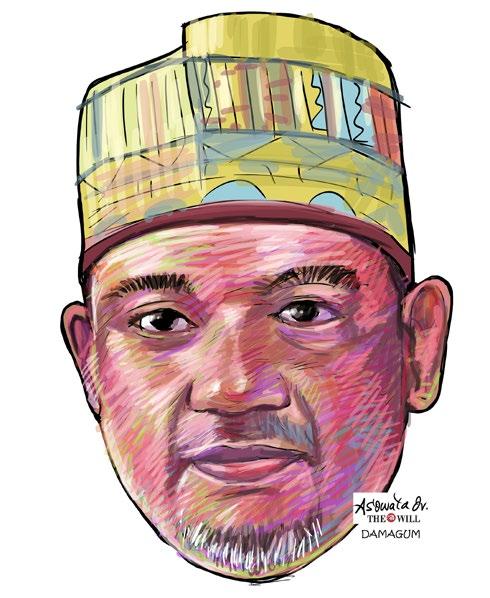
1999 until December 2007 and a member of the All Progressives Congress [APC] party of Nigeria from December 2007 until May 2017,” Morka said at the weekend.
He said that APC was not in existence as of 2007. The party was registered in 2013. The Applicant’s claim of membership of APC as of 2007 is evidently false as he could not have been a member of APC that didn’t exist at the time.
“For the avoidance of doubt, we make bold to state that the court never made any determination on the question of terrorism in its decision. Clearly, reports that APC was declared as a terrorist organisation by the Canadian court in this matter is patently erroneous, if not mischievous," he said.
A lawyer, Dr. Tonye Clinton Jaja, however disagreed with Morka, stating that the Canadian court's statement was beyond political parties. In an open letter to Senator Ajibola Bashiru, Jaja urged Nigeria to lodge a lawsuit against Canada at the International Court of Justice (ICJ) over a recent judgment of the Federal Court of Canada in Egharevba v. Canada (Public Safety and Emergency Preparedness), 2025 FC 1093.
According to Dr. Jaja, the Canadian decision amounted to a declaration that the Nigerian Police, the All Progressives Congress (APC), and the People’s Democratic Party (PDP) are “terrorist organisations.” He further argued that Nigeria should challenge the decision internationally to prevent other Commonwealth countries from citing it.
For the PDP Deputy National Youth Leader, Timothy Osadolor, individuals could be so described, but not a political organisation, if the court judge was being sincere.
“Nigeria and Canada are both democracies. And I’m sure those who make such statements enjoy their right to freedom of speech. But again, when having freedom of speech, one should be circumspect about unguarded and unnecessary statements. There’s nothing to show, there’s nothing on text to show that even the malfunctioning APC is a terrorist organisation or the PDP, which is a credible institution,” he reportedly said.
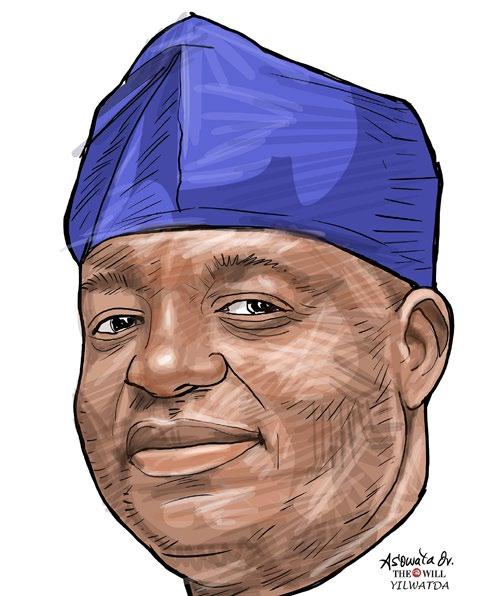
Former NNPC spokesperson, Olufemi Soneye warned of the precedent that the ruling could set for Nigeria and the CanadaNigeria relationship.
“The implications are deeply troubling. Legally, the ruling sets a precedent that political affiliation, no matter how commonplace or mainstream can be equated with terrorism. Diplomatically, it risks souring Canada-Nigeria relations by painting the country’s core democratic institutions with the same brush as extremist groups. For Nigerians abroad, especially those who have ever held a party membership card, it signals heightened scrutiny, denied visas and rejected asylum claims, not only in Canada but potentially in other Western democracies that may follow suit,” he said in a piece titled, 'From Politics to Terrorism? Canada’s Dangerous Redefinition of Nigeria’s Democracy.'
Soneye argued that even more alarming is what this means for democracy, saying that labelling established political parties as terrorist organisations undermines their legitimacy at home and abroad. “It blurs the vital line between dissent and danger, between governance and extremism, adding that If democratic nations don’t push back on this kind of overreach, they may one day find their own politics on trial in a foreign court.”
“

“To be clear, the only reference to APC in the entire 16-paged decision was in the introductory 'Background', Paragraph 4, where the court referenced a “Background Declaration Form in which the applicant stated that he was a member of the People’s Democratic Party [PDP] of Nigeria from December

Osadolor added: “If they wanted to say that some individuals in the government, particularly the APC government, have traces to terrorism… they will have a case. But to say an entire political party is a terrorist organisation is wrong.”
The Federal Government of Nigeria, therefore, calls on the Canadian authorities to immediately retract this erroneous designation and refrain from actions that could be misconstrued as
endorsing politically motivated narratives against Nigeria







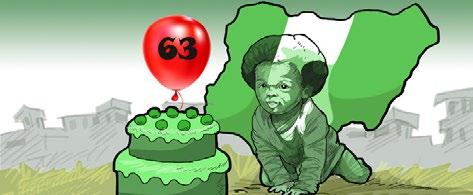




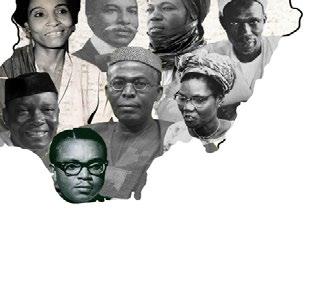


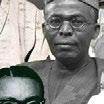




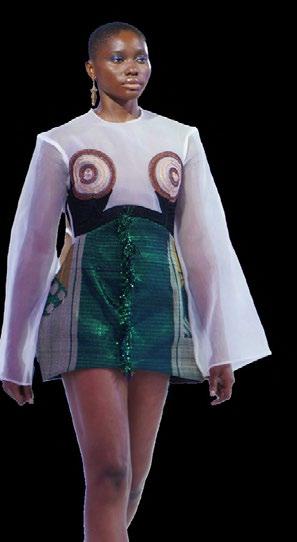
Page N600, 000

000
Double Spread Half Page N1, 200, 000
10X6 N700, 000
10X5 N650, 000
10X4 N600, 000
10X3 N500, 000
9X6 N440, 000
9X5 N395, 000
9X4 N335, 000
9X3 N310, 000
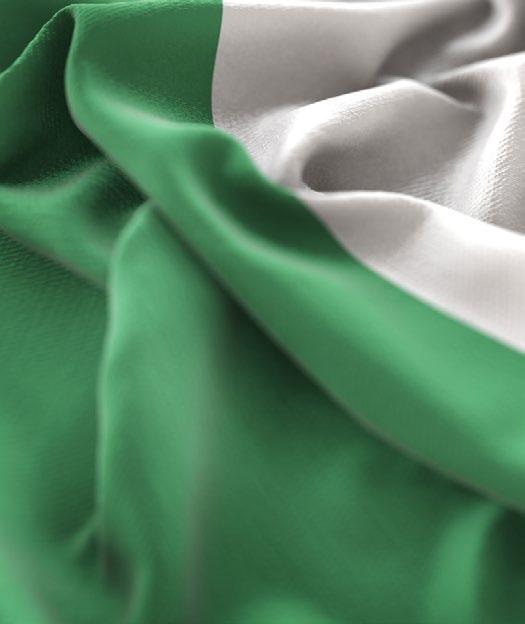
8X6 N410, 000

8X5 N380, 000
7X5 N320, 000



7X4 N315, 000

6X5 N280, 000

6X3 N145, 000
6X2 N85, 000
5X2 N70, 000
4X4 N160, 000
4X3 N95, 000
4X2 N65, 000
3X3 N60, 000
3X2 N50, 000
2X2 N30, 000
2X1 N15, 000 1X1 N7, 000
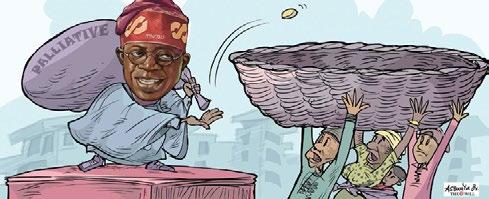









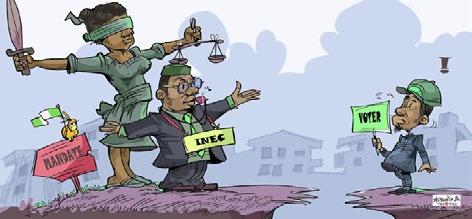













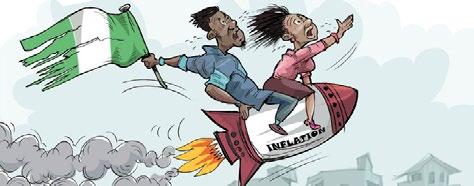






















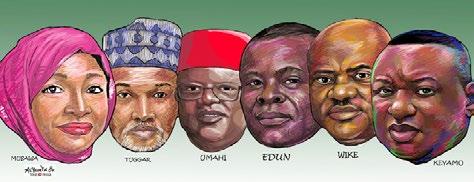

When tenured officials of government flagrantly disobey the law, then some deep -seated malaise yet to be properly noticed, assessed and addressed is gradually wreaking havoc on society’s social fabric as pointed out by Senator Akpabio
“
The Federal Government's recent directive to all Ministries, Departments, and Agencies, MDAs, to stop issuing contract award letters without warrants or Authority to Incur Expenditure (AIE) from the Minister of Finance, is one of the latest in a series of such directives frequently issued by the executive and legislative arms of government and routinely ignored with impunity by the MDAs.
On the other hand, the MDAs often fail to honour invitations by the National Assembly for budgetary defence every year.
Yet no sanction has ever been meted out to the heads of the MDAs. And the impunity continues.
For instance, in October 15, 2024, the Federal Government directed appointees of President Bola Tinubu and heads of federal agencies to henceforth honour invitations for appearances at the National Assembly "in line with the existing harmonious working relationship between the executive and legislative arms of government."
(Emphasis ours.)
That year, Senator Basheer Lado, the Special Adviser to the President on Senate Matters, stated that the Presidency frowned at reports of flagrant disobedience to Senate summons by some heads of federal Ministries, Departments and Agencies.
The Presidency’s intervention came a day after the Senate, through its committee on Ethics, Privileges and Public Petitions, threatened to issue a warrant of arrest against those ignoring its invitations.
Two months later, on December 21, 2024, the House of Representatives Committee on Legislative Compliance was back on the same issue. Frustrated, it had to issue a seven-day ultimatum to 19 Ministries, Departments and Agencies (MDAs) of the Federal Government to comply with invitations to appear before
relevant committees or face stringent sanctions.
According to the Chairman of the Committee, Rep. Yusuf Ahmed Badau, while referencing the serial contempt for its invitations, noted that resolutions are key instruments through which it exercises its oversight functions as enshrined in sections 88 and 89 of the 1999 Constitution of the Federal Republic of Nigeria (as amended).
There is more. On April 16, 2025, Senate President, Godswill Akpabio at a public function repeated the same problem, noting the damage caused by the MDAs impunity. He said, “When departments and agencies fail to comply with legislative directives, they undermine not just the authority of the legislative arm of government but also the collective will of the Nigerian people whom we all represent. When public institutions ignore legislative resolutions, when compliance becomes selective and when oversight is treated with disdain, the result is a breakdown in trust."
With the Presidency's intervention last Wednesday, the MDAs' impunity has gone full circle and back.
The Minister of Finance and Coordinating Minister of the Economy, Wale Edun, who announced the new order on Wednesday during a one-day stakeholder engagement with permanent secretaries and accounting officers on the implementation of the 2025 capital budget, explained that the requirement for warrants or AIEs, serving as proof of available funds, would ensure that payments to beneficiaries are made immediately after projects are completed. Edun said the policy would make the payment process more rigorous and transparent, with suppliers, contractors and service providers receiving direct payments from the government.
At the meeting, the Accountant-General of the Federation, Samseldeen Ogunjimi, who also cautioned against breaches of financial regulations by MDAs, cited cases of awarding

NIGERIA BUREAU: 36AA Remi Fani-Kayode Avenue, GRA, Ikeja. Lagos, Nigeria.

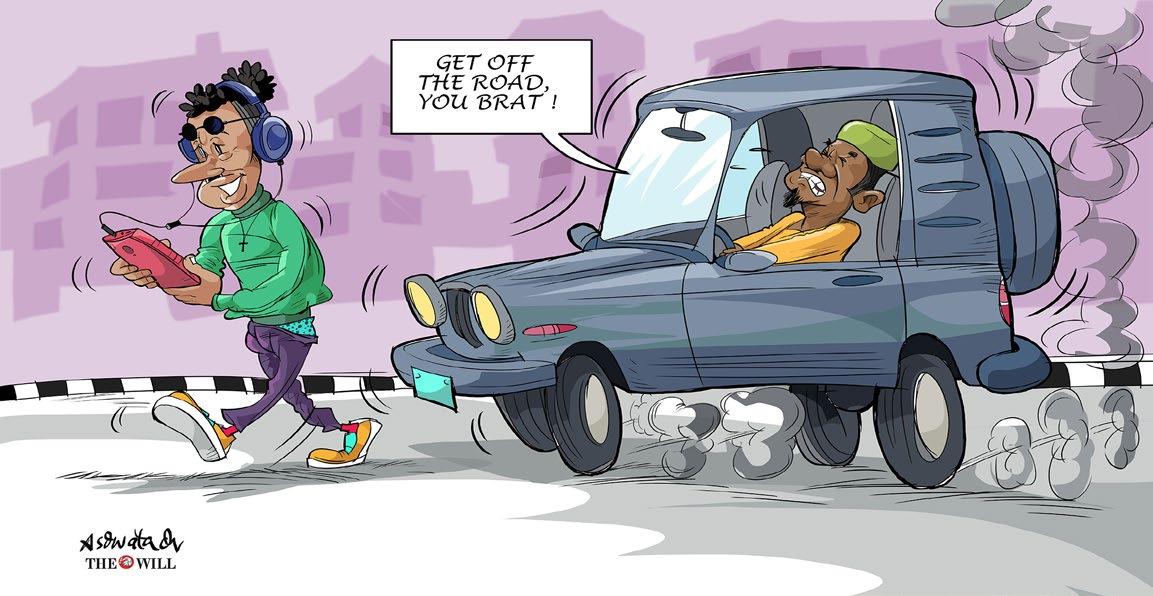



BY UCHE IGWE
The Managing Director of the Niger Delta Development Commission, Dr. Samuel Ogbuku, will turn fifty next week. However, contrary to the expectation of many, he will be marking his birthday differently. He decided to convert it to a festival of ideas and debates through the presentation of two books authored by him and his colleagues. Although many of his friends and associates would have wished for a more elaborate celebration, his decision is a reaffirmation of the value he places on scholarship and intellectual inquiry. I have glanced through both books and can confirm that they demonstrate a courageous and forward-looking attempt to proffer pragmatic solutions to lingering Niger Delta questions.
Through his writings, he revealed his evident passion for the region and his desire to leave it in better condition than he found it. One thing every reader will likely acknowledge is the author's intellectual honesty. He was frank about the historical challenges of the region and boldly admitted the misadventures of the past. However, he offered himself as an instrument for a conscious and deliberate recalibration through a pathway full of hope and optimism. It was as though he were somewhere quietly preparing himself and incubating ideas for such a leadership role ever before his appointment.
His preference for intellectual pragmatism in resolving the problems of the Niger Delta is not a oneoff affair. He has recruited several academics on sabbatical leave from renowned universities across the region, who are embedded as researchers in core departments within the Commission. Sometime in 2019, our firm was engaged to support NDDC’s efforts to rebuild partnerships with development partners and the private sector. However, a few weeks after we submitted our roadmap and started work, the management of the Commission at that time was removed. The preceding management did not pay much attention to the plan we submitted until Dr. Ogbuku and his team came on board.
As part of his deliberate efforts to re-engineer the Commission's perception positively and encourage them to partner with donors and the private sector, he invited us. Supporting NDDC's work the past two years has further revealed Dr. Ogbuku's personality and style to me and my team. He puts no one in doubt about his progressive disposition and solution mindset. He is ever willing to listen to new ideas and allows positive initiatives to thrive. I recall a time when the Registrar of the University of the West Indies in Mona, Jamaica, visited Port Harcourt and requested to see him. He agreed to meet with him but got very busy with work. When I

reminded him, he graciously allowed the Registrar to meet with him in the evening at home. That is how far he can go when he gives you his word.
A few times when our work got caught in some bureaucratic inertia, he intervened with a depth and understanding that we did not expect. His engagements with donors and investors within and outside the country consistently inspire positive feedback, suggesting that the NDDC now enjoys improved trust from stakeholders.
Many members of staff share the view that Ogbuku possesses excellent administrative acumen and an inclusive governance approach. Multiple sources within the staff have confirmed to me that the current management of the Commission is likely one of the best in terms of staff welfare. Many innovative welfare schemes have been introduced to boost staff morale and enhance professionalism. Such an approach confirms that the Managing Director is someone who regularly and willingly listens to the pulse and concerns of his subordinates.
Working with or around Dr. Ogbuku, you will readily observe that he is a rallying point and a gifted connector of people from diverse political persuasions – whether you are his schoolmate, neighbour while growing up in Port Harcourt, or kinsman in his village. You can rest assured that he will create time out of his hectic schedule to listen to you. You may underrate the versatility of his emotional intelligence until you engage him. He may not be perfect in this regard, but I have heard some of his childhood friends commend him for not letting the glamour of the office distract him from his old friends or childhood associates.
WORKING WITH OR AROUND DR. OGBUKU, YOU WILL READILY OBSERVE THAT HE IS A RALLYING POINT AND A GIFTED CONNECTOR OF PEOPLE FROM DIVERSE POLITICAL PERSUASIONS
Ogbuku’s job appears quite complex, extremely demanding, and involves managing divergent stakeholders who often seem entitled. However, I admire how he quietly but distinctively discharges his duties in a manner that leaves everyone sufficiently engaged. His display of political wit, dexterity, and versatility suggests that he has more to offer the region beyond his current position. I wish him good health and wisdom in delivering positive developmental footprints in this current position and beyond.
•Uche Igwe, Ph.D, is a political economy analyst and visiting fellow at the London School of Economics and Political Science. You can reach him at u.igwe@Ise.ac.uk
BY UDEME UTIP
As Nigeria edges closer to the 2027 General Election, political tension is rising, alliances are shifting and the search for a unifying figure capable of steering the country through its most pressing challenges has intensified. Amid the noise and uncertainty, one name consistently sparks discussion across political, social and economic circles — Dr Goodluck Ebele Jonathan.
Jonathan, who served as President from 2010 to 2015, remains one of Nigeria’s most respected democratic figures. His decision to peacefully concede defeat in 2015 was unprecedented in the nation’s history and set a standard for political maturity and patriotism. That singular act elevated Nigeria’s democratic reputation globally, showing that leadership could be about service and sacrifice, not self-preservation.
In a political space often dominated by divisive rhetoric and personal ambition, Jonathan’s image has retained a rare blend of humility and inclusivity. His calm demeanour, conciliatory approach, and proven ability to work across party lines give him an advantage in a country craving unity.
During his tenure, Nigeria’s economy experienced one of its strongest GDP growth periods, fueled by diversification efforts in agriculture, telecommunications, and infrastructure development. While challenges existed, particularly in the area of security, the economy was stable enough to attract international investment and keep inflation at manageable levels.
Jonathan’s government also initiated reforms aimed at improving food security through the Agricultural Transformation Agenda, expanding access to education, and modernising Nigeria’s power infrastructure. These policy frameworks remain relevant today and could be revived with more focused execution in a second tenure.
Perhaps most importantly, Jonathan’s post-presidency years have been marked by a deliberate avoidance of bitter partisan battles. He has served as a peace envoy in several African nations, mediating political crises and earning a reputation as a trusted statesman across the continent. This track record positions him as a credible figure capable of mending Nigeria’s fractured political landscape.
The truth is that Nigeria’s opposition has repeatedly suffered from fragmentation. In 2019 and 2023, multiple opposition candidates split votes, allowing incumbents to retain power despite widespread calls for change. If this pattern continues in 2027, history may repeat itself.
A strategic alliance with Jonathan as the consensus candidate could break this cycle. His cross-regional acceptability makes him an ideal rallying point for opposition forces who, despite ideological differences, share a common goal of rescuing Nigeria from economic hardship, insecurity, and political instability. Atiku
Abubakar, with his decades of experience in governance and economic reform advocacy, could bring significant value to such a coalition. His expertise in privatisation and investment could complement Jonathan’s inclusive leadership style.
Peter Obi, known for his fiscal discipline and efficiency from his tenure as governor of Anambra State, could serve as a driving force for transparency, accountability, and cost-cutting reforms in a Jonathan-led administration.
Rabiu Kwankwaso, with his grassroots influence in the North, especially in Kano and neighbouring states, could help secure the votes necessary to bridge regional divides. His commitment to education and youth empowerment could further strengthen the coalition’s policy platform. By working together, these leaders would not only consolidate their voter base but also present a united front that projects competence, stability, and inclusiveness — the very qualities Nigerians are yearning for. One of Jonathan’s most notable strengths is his ability to build trust across Nigeria’s ethno-religious divides. He remains a rare political figure respected by Christians and Muslims alike, and he has consistently emphasised national unity over sectional politics.
In a country where identity politics has often overshadowed policy debates, Jonathan’s leadership could shift focus back to governance, development, and problem-solving. His experience in balancing competing regional interests could be critical in addressing demands for restructuring and fiscal federalism. Jonathan has shown an openness to mentorship and talent development, often surrounding himself with technocrats and professionals rather than political loyalists alone. This could pave the way for a merit-based administration capable of delivering tangible results.
The 2027 General Election will be about much more than just changing leadership; it will determine whether Nigeria can reverse years of economic decline, address worsening insecurity and rebuild public trust in governance. The stakes could not be higher.
ULTIMATELY, THE CHOICE BEFORE NIGERIANS IN 2027 WILL BE BETWEEN REPEATING THE MISTAKES OF FRAGMENTED OPPOSITION AND FORGING A UNITED PATH TOWARD NATIONAL RENEWAL
Jonathan’s return, backed by a broad coalition of experienced politicians and reform-minded leaders, offers a chance for stability. His familiarity with the machinery of government means there will be less of a learning curve, allowing for faster policy implementation.
If Atiku, Obi, Kwankwaso, and other influential figures can set aside personal ambition and rally behind Jonathan, they could create a political force capable of winning not just an election, but also the confidence of Nigerians across all regions.
Ultimately, the choice before Nigerians in 2027 will be between repeating the mistakes of fragmented opposition and forging a united path toward national renewal. Goodluck Jonathan, with his track record of peaceful leadership, economic stewardship, and bridge-building diplomacy, stands out as a candidate who could unify both the political class and the electorate.



Continues from page 34
States with $7.81 million and 4.06 million respectively.
Of particular concern is Imo. Despite housing the largest natural gas reserves and significant crude oil deposits in Nigeria, the state attracted zero foreign investment in five years, between 2020 and 2025, according to data by the NBS. The statistics agency in its quarterly Capital Importation reports showed that, after recording the sum of $3 million in 2019, Imo had no dime to its name by way of investment inflow to the
Kano and beyond, via the gathering facilities in Kogi state, will be fed largely with gas sourced from Ohaji-Egbema Local Government Area of Imo State, known for its abundant gas deposit.

Continues from page 34
The project which comprises a Phase One 300MMscfd midstream gas processing plant has since been concluded.
growing 11% quarter-onquarter.

The reports further revealed that Imo is the only oil-producing state in the South-east region that attracted no foreign investment for the five years, unlike its two counterparts – Anambra and Abia states which achieved a total of $51.48 million
The reports did not offer details of the investments to the states by sectors and products. However, Abia recorded the highest bulk of $150.09 million investment inflow in the third quarter of 2023, after the inauguration of Mr Alex Otti as the elected 4th governor of the state in May
Imo’s unimpressive situation is more worrying on the ground that the state is known for its largest natural gas reserves in the country and in West Africa, which is the source of huge revenue
Imo gas feeds many households and large establishments in some parts of Nigeria. Also, the widely celebrated NNPC’s 615 km AKK Gas pipeline project from Abuja to Katsina through
Nigeria has nearly 300 trillion cubic feet of natural gas reserves, ranking 9th in the world, with Imo holding the largest reserve of 200 trillion cubic feet of gas deposits.
Industry experts confirm that Imo’s huge oil and gas deposits constitute an unprecedented economic asset that no other South-east state can boast of. For Imo to be lacking in foreign investment in oil, gas and other natural resources is considered a huge disappointment. Among the major gas facilities in Imo is the ANOH Gas Processing Plant development at OML 53 (and adjacent OML 21) operated by Seplat Energy, which the firm said would drive the next phase of its growth in expanding the gas business. The project which comprises a Phase One 300MMscfd midstream gas processing plant has since been commissioned. The gas plant located in OML 53, Niger Delta, is expected to deliver dry gas, condensate, and Liquefied petroleum gas (LPG), and otherwise known as cooking gas, to customers locally and internationally.
Industry experts say it will help the country to accelerate its transition away from small-scale diesel generators to cleaner, less expensive fuels such as natural gas for power generation. With such a significant project, stakeholders are concerned that Imo would be shunned by strategic investors, especially in the oil and gas sector.
The gas plant located in OML 53, Niger Delta, will deliver dry gas, condensate, and Liquefied petroleum gas (LPG) otherwise known as cooking gas, to customers locally and internationally.
ANOH is one of Nigeria’s most strategic gas projects. Experts say it will help the country to accelerate its transition away from small-scale diesel generators to cleaner, less expensive fuels such as natural gas for power generation.
In his comment on the H1 2025 performance, Roger Brown, Chief Executive Officer, said:
“Seplat has continued its positive trajectory in Q2 to deliver a strong performance for the first half of 2025.
“Our focus on integrity, reliability and production improvement activities are bearing fruit as evidenced by strong production in 2Q 2025, with onshore in the upper end of guidance, and offshore production
“The Company delivered first half production over 10% higher than the proforma output in the same period last year, delivering on both our ambitions and supporting Nigeria’s goals of oil and gas production growth.
“We are well placed to weather the recent increase in macro volatility.
Strong revenues and a focus on costs delivered significant positive cash flows, enabling us to further reduce net leverage, continue our strong quarterly dividend track record and in the past week, pay down an additional $100 million of debt.
“We have hit the ground running in 2025 building a strong foundation with which deliver on our 2025 performance targets.
“Integration of the enlarged group continues at pace and we look forward to sharing our exciting plans for the Company when we set out the future of our business at the upcoming Capital Markets Day in September.”
tax FX losses of ₦507.2 billion, up from ₦359 billion in 2023, representing a combined ₦867 billion in losses.
“In 2025, we have seen zero FX losses due to exchange rate stability, and this has significantly boosted investor confidence,” he said.
The APT Securities boss said the signing of the Nigerian Insurance Industry Reform Act (NIIRA 25) has triggered a rally in insurance stocks, while the CBN’s bank recapitalisation programme has revived the primary market, attracting over ₦2 trillion in 2024, with similar volumes anticipated in 2025.
likely to cut
He also revealed that foreign capital inflows reached $5.6 billion in the first quarter of 2025, up from $3.4 billion in the same period in 2024, representing a 67.42 percent increase.
"Foreign portfolio investment now accounts for 27.08 percent of market participation, or ₦1.14 trillion, as of July 2025, compared with less than 10 percent at the end of 2023.
"Domestic investors, however, remain the dominant force, accounting for 72.92 percent, or ₦3 trillion. Daily market turnover has also improved sharply, averaging ₦25–₦30 billion, compared with ₦5 billion in previous years.
"Performance data for the year shows the NGX turnover reached ₦4.19 trillion for the first half of 2025, compared with ₦2.60 trillion in the same period in 2024. Total market capitalisation rose to ₦126.73 trillion from ₦112.6 trillion
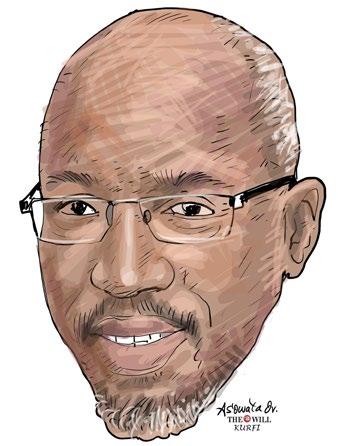
in December 2024, while equity capitalisation surged to ₦92.73 trillion as of August 7, 2025, from ₦62.66 trillion at the end of 2024.
"The All-Share Index (ASI) climbed to 146,569.35 basis points in early August, up 41.61 percent from 102,926.40 points in December 2024.
"Sectoral performance has been robust, with about half of the NGX’s 21 indices outperforming the ASI. The Nigerian Consumer Goods Index has more than doubled the market’s gains with an 81.11 per cent rise,
For investors, Kurfi recommended a focus on blue-chip stocks with strong fundamentals and insurance companies, particularly those that have diversified into asset management, including pension fund administration.
He advised portfolio diversification to include fixed-income instruments for balance, adding that the capital market remains the best hedge against inflation and naira devaluation in the current economic climate.
At the end of the last weekday of trading on the NGX last Friday, August 15, a total of 1,374,219,258 shares in 32,057 deals, corresponding to a market value of NGN 13,922,932,205.92, were traded.
Compared with the previous NGX trading day (Thursday, August 14), Friday’s data shows 44% decline in volume, 37% decline in turnover, and 26% decline in deals. The current market capitalization of the Nigerian Stock Exchange is NGN 91.5 trillion.
Regarding the performance of NGX market indices, the benchmark NGX All-Share Index (ASI) shed 671.81 (-0.46%) points to close at 144,628.20, representing a 1-week loss of 0.77%, a 4-week gain of 9.91%, and an overall year-to-date gain of 40.52%.
Why relationships, not just policies, shape the world we live in.
We often think of politics as something distant. Suits, speeches, chambers filled with debate. But if you strip it down to its most human form, politics is really just the management of relationships: how we connect, who gets included, and what happens when trust is either built or broken.
Connection is political. Not in the cynical sense of networking for personal gain, but in the deeper recognition that every relationship carries the potential to redistribute power, reshape narratives, and redraw the boundaries of what is possible.
THE INVISIBLE ARCHITECTURE OF INFLUENCE
Consider the anatomy of any major social movement. Before the marches, before the legislation, before the headlines that capture our collective attention, there were countless small moments of human connection. Nigeria's #EnoughIsEnough movement didn't begin with the massive protests at the National Assembly; it started with young professionals sharing frustrations about corruption and governance over late-night conversations in cafés and on social media. What began as informal discussions about fuel scarcity, power outages, and government accountability gradually coalesced into a coordinated movement that would mobilise thousands across the country.
These connections operated on multiple levels simultaneously. There was the emotional bond, the trust that allowed people to be vulnerable about their deepest hopes and fears. There was intellectual exchange, ideas refined through passionate debate and collective wisdom. And there was the strategic alliance, the recognition that individual voices, however powerful, could only achieve so much alone.

Yet we rarely examine the mechanics of how these connections formed and sustained themselves. Who made the initial introductions? Which conversations happened in public versus private? How did trust accumulate across lines of difference: class, ethnicity, religion and ideology? The answers reveal the hidden infrastructure that makes social change possible.
GATEKEEPERS OF ACCESS
In Nigeria and across Africa, the politics of connection carries the weight of history; colonial legacies, ethnic complexity, and generational power structures. Social media has democratised voices in unprecedented ways, yet access to real influence still flows through familiar channels. Twitter storms can spark national conversations, but policy changes often happen in the private clubs of Lagos Island, the golf courses of Abuja, or the family compounds where traditional rulers hold court.
Who gets the audience with the governor when budgets are being allocated? Whose tech startup gets featured at the major conferences that attract international investors? Which young activist gets mentored by the established civil society leaders with donor connections? These decisions ripple far beyond individual careers, they determine which communities get represented in policy discussions and whose innovations get the support to scale across the continent.
The challenge runs deeper than simple networking. Nigeria's federal character principle attempts to ensure ethnic balance in appointments, yet informal power often concentrates around shared backgrounds- those who attended the same universities abroad, or did their national service year together with the same multinational. When contract opportunities flow through ethnic or religious networks, when political appointments favour those with family connections, and when expertise gets defined by ‘man-know-man’ rather than local knowledge, connection becomes a mechanism for perpetuating inequality across both class and regional lines.
WHO GETS HEARD?
Perhaps nowhere is this more evident than in how social issues gain public attention across Nigeria's diverse landscape. Some causes
capture nationwide sympathy while others struggle for recognition, often based not on their objective severity but on their proximity to influential voices.
This isn't necessarily conscious bias; it is the natural result of how empathy travels through networks of familiarity. We most readily understand experiences that mirror our own or those of people we know personally. A middle-class professional in Abuja might feel more urgency about internet shutdowns than a rural community lacking electricity, while someone from a farming family immediately grasps the impact of climate change in ways that urban dwellers might not.
The most effective advocates understand this geography of attention. They don't just present statistics about poverty or conflict; they create opportunities for relationships across Nigeria's divides. They bring Lagos tech entrepreneurs to meet smallholder farmers in the North West, innovating with mobile money. They arrange for Abuja policymakers to spend time in Niger Delta communities living with oil spill consequences. They facilitate conversations between traditional rulers and youth activists outside the context of protest or confrontation, finding common ground in shared concerns about community development.
THE TRUST DEFICIT
But connection across Africa's diverse landscape faces unique and complex obstacles. Political discourse increasingly fractures along ethnic, religious, and regional lines, with social media algorithms amplifying divisive content that drives engagement. WhatsApp groups become echo chambers where misinformation spreads faster than fact-checkers can counter it. In countries like Kenya and Nigeria, political conversations often retreat into linguistic or ethnic enclaves, limiting cross-community dialogue.
Meanwhile, institutional trust varies dramatically across the continent. While some countries maintain faith in traditional authorities or religious institutions, confidence in democratic institutions, media, and even international organisations has been shaken by decades of unfulfilled promises. When people lose faith in formal systems, they naturally fall back on kinship networks, ethnic associations, or religious communities for information and support. This can strengthen local solidarity while making pan-African cooperation or even national unity more challenging.
The digital divide adds another layer of complexity. Urban elites engage in heated Twitter debates about governance and development while rural communities remain disconnected from these conversations entirely. A tech entrepreneur in Lagos or Cape Town might have more in common with Silicon Valley than with a farmer three hours outside their city. We can broadcast our thoughts to thousands of followers while struggling to have authentic conversations with our neighbours. How many of us recognise this contradiction in our own lives?
MOVING BEYOND HASHTAG SOLIDARITY
In this environment, there's pressure to demonstrate connection through public gestures; the right solidarity tweet during protests, appearances at high-profile conferences, or strategic partnerships with international NGOs. While visibility matters, it often substitutes for the harder work of building relationships across Nigeria's ethnic and class divides, or between Africa's urban centers and rural communities.
Real connection is riskier. It means the Port-Harcourt or Lagos executive who genuinely engages with Aba traders, discovering shared concerns about infrastructure that transcend regional stereotypes. It means the civil society leader who spends time in communities they advocate for, rather than just representing them in donor meetings. Authentic relationships involve unpredictability, you might find yourself changed by the encounter.
PRACTISING
So how do we cultivate more meaningful connections in a fractured world? It starts with recognising that relationship-building is itself a

When people lose faith in formal systems, they naturally fall back on kinship networks, ethnic associations, or religious communities for information and support
political act that requires intention and skill.
Listen with the goal of being surprised. Most of us listen to confirm what we already believe or to formulate our response. Instead, approach conversations with genuine curiosity about what you might learn. Ask follow-up questions. Sit with uncomfortable silence. Notice when you feel defensive and get curious about that feeling instead of acting on it immediately.

Seek out spaces of productive friction. Look for contexts where people with different perspectives are working on shared challenges, community organising around local issues, interfaith social justice initiatives, bipartisan policy working groups, or even book clubs that tackle difficult topics. These settings provide structure for engagement beyond purely political identity.
Share power, don't just platform voices. It's not enough to amplify marginalised perspectives if decision-making remains concentrated in traditional centers of power. True connection requires redistributing influence, bringing people into rooms where decisions get made, not just where they get announced.
Invest in relationships before you need them. Crisis moments reveal the strength or weakness of existing connections, but they're not ideal times to build new ones. The climate activist who has spent years building trust with labour leaders will be more effective during debates over green transition policies. The progressive who has genuine friendships with conservatives will be better positioned to find unexpected allies.
In a polarised world, connection can feel like a luxury we can't afford. When democracy itself seems under threat, when injustice demands urgent action, when time feels scarce and stakes feel high, the slow work of relationship-building can seem insufficient to the moment. But this is precisely when connection becomes most essential. When we lose sight of each other's humanity, and start seeing political opponents as enemies rather than neighbours, when fear and anger become our primary motivating forces. That's when democracy begins to die from the inside out.
The most radical thing we can do is refuse to let political differences eclipse human connection. Not because politics doesn't matter, but because politics matters too much to be left to the politicians. Real change happens in the spaces between formal institutions, in the relationships that make cooperation possible, in the trust that allows people to take risks together, in the connections that remind us why we are fighting in the first place.
Every conversation is an opportunity. Every relationship is a vote for the kind of world we want to live in. And every act of genuine connection is a small rebellion against the forces that would divide us.
So, let's stay human. Let us remember that beneath every policy is a person. And let us never forget that sometimes the most powerful political act is simply showing up with honesty, humility, and heart to the relationships that matter most.
Aramide Abe is a networking expert and a professional in international development. She is the convener of an African business leader network - Naija Startups. Follow arams on Twitter, Website - www.aramide.ng



Photo Editor: Peace Udugba [08033050729]
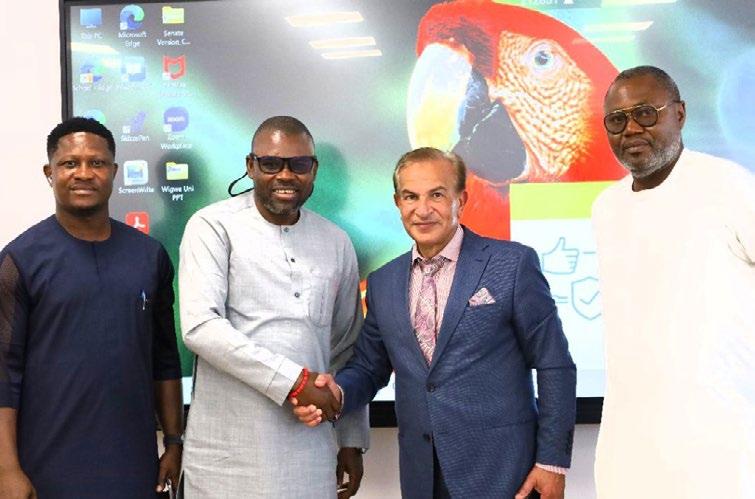
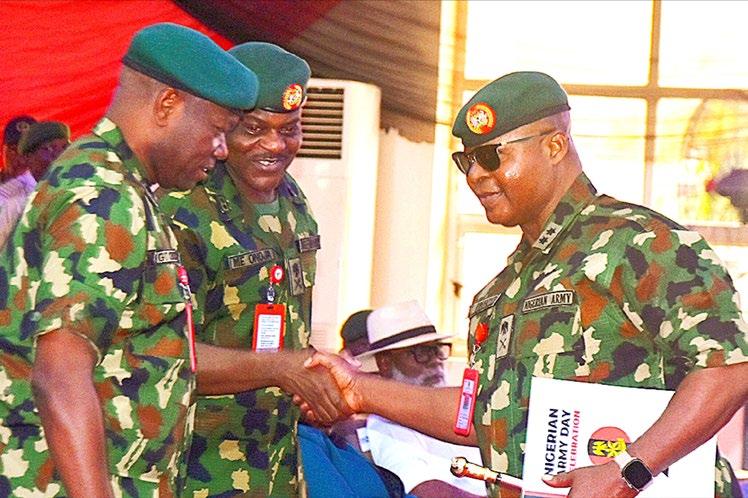
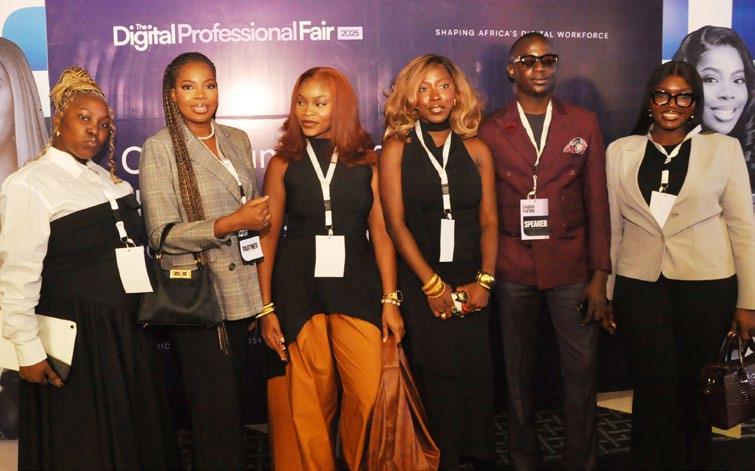
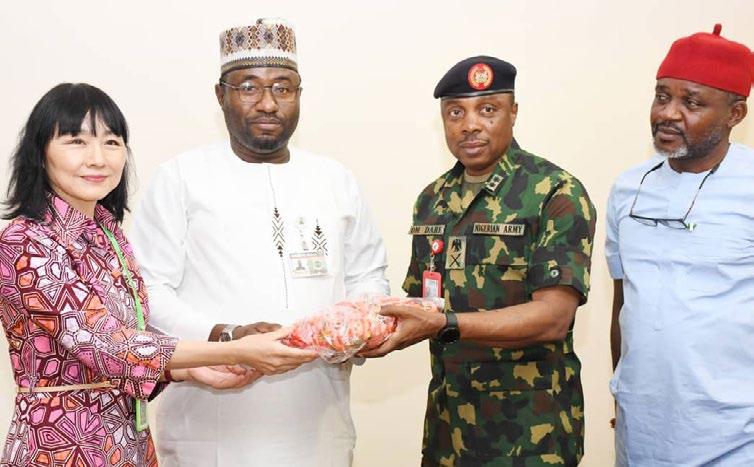

L-R: Firayo Jegede, Senior Client Partner, RT Creative Transformation Company; Precious Babalola, Digital Entrepreneurship Advocate; Amaka Amakai, Social Media Manager, Flutterwave;Toluwalope Ogunade, Creative Specialist; Akinlotan Oluwaseun, Digital Content Specialist; Kaosarat Adugba, Product Manager, Interswitch Group; Guest Speakers at the Digital Professional Fair 2025, held at Landmark, Lagos on August 11, 2025.
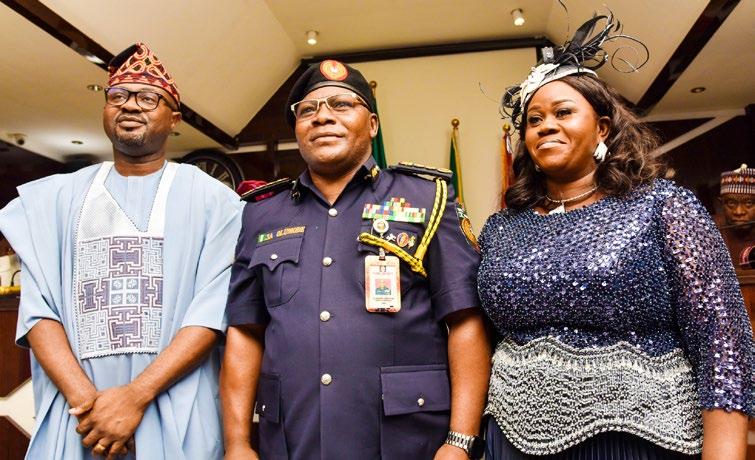
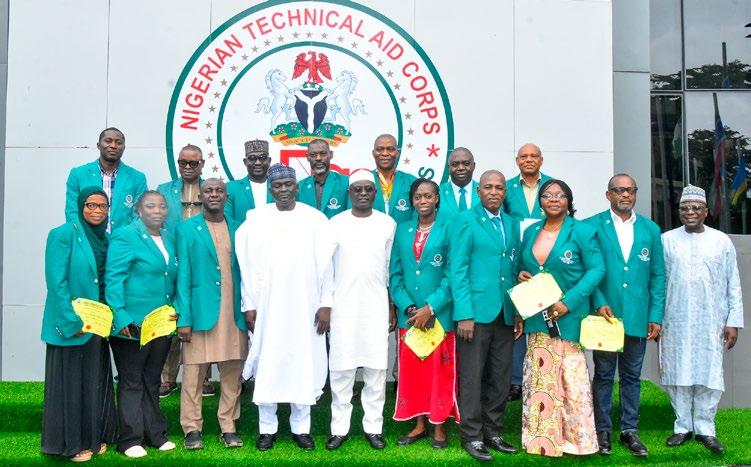

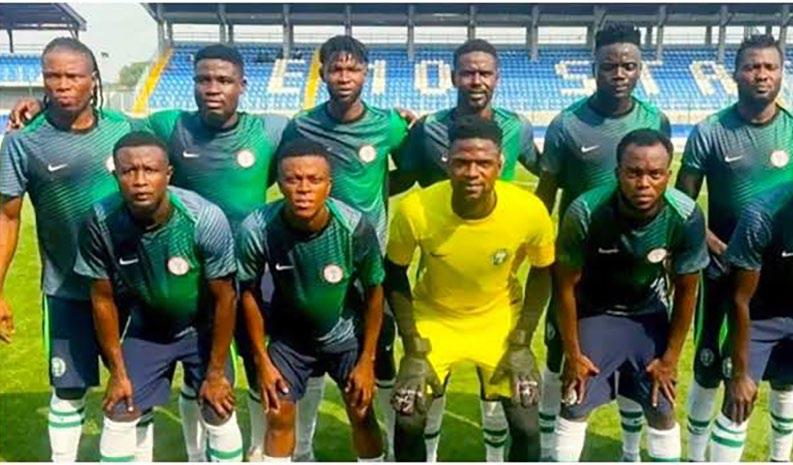
BY JUDE OBAFEMI
Nigeria’s hopes of advancing in the 2025 African Nations Championship came to a halt on Tuesday, following a 4-0 defeat to Sudan in Amaan Stadium, Zanzibar City. Having already lost their opening game to Senegal, the home-based Eagles required a positive result to keep the campaign alive, but the heavy loss sealed their exit from the competition at the group stage. The fixture had been billed as a crucial test for both the players and the technical crew, who entered the tie under pressure to salvage some pride after the opening setback. Instead, the team collapsed against a sharper Sudanese side, confirming their elimination and raising serious questions over how a country of Nigeria’s football standing could crash out in such fashion.
The match began with Nigeria trying to set a quick tempo and to load set-plays, and there was an early sense that gain could come from pressure on Sudan’s goalkeeper Mohamed Abooja. That plan briefly looked like it had worked when Anthony Ijoma put the ball in the net midway through the first half, only for a VAR review to rule the finish offside. The next few minutes flipped the tie. Abdel Raouf Yagoub struck a post, the rebound hit defender Leonard Ngenge and rolled in for an own goal, and the lift Sudan took from that moment
Nigeria will meet Congo on August 19 with progression
set the tone for the evening. Minutes later Ngenge’s handball conceded a penalty that captain Walieldin Khdir converted with power. From the key call on the offside to the rapid twogoal swing, the turning points before half-time were clear and brutal.
Eric Chelle reacted during the interval, changed personnel and tried to alter the rhythm, but Sudan stayed calm and clinical on transitions. Abdelrazig Omer got his name on the score sheet for the first time early in the second half after pressure down the right unsettled Nigeria’s back line, and again seven minutes later after another clean break into the box. Abooja then made a couple of tidy saves that helped his team see out their lead as Sudan managed the final third of the match with calm passing and sound spacing, leaving Nigeria to chase openings from distance. It was a clear example of one team setting traps and finishing moves while the other ran out of ideas in the final third.
Performance levels can be read through simple themes. Sudan were organised without the ball, worked in packs in midfield, and chose their moments to step on. Their wide players protected full-backs first and attacked later, which meant they were not dragged out by early Nigerian crosses. In possession they were direct without being crude, breaking forward with passes into feet and runners beyond the ball. The result was a side that looked in control of the spaces that matter. Nigeria’s issue was not effort. It was structure. The press was broken too easily down the sides, support around the ball was slow after first contact, and the box entries that did arrive lacked precision.
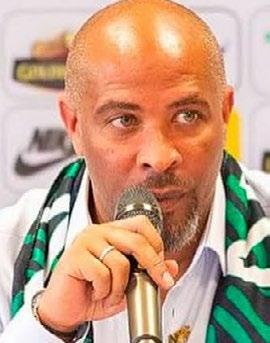
It is worth underlining that the opening goal changed more than the scoreline. Before that moment Nigeria’s plan to crowd the box on corners and free-kicks had drawn a few halfchances, and Sikiru Alimi twice went close either side of the disallowed Ijoma effort. Conceding in the way they did, followed by the penalty, sapped belief and forced charging forward at a pace that suited Sudan’s counter-attacks. That emotional drop alongside tactical looseness is a common
pattern when the first key episode goes against you, and it was repeated here.
Chelle accepted responsibility afterward, calling it the worst game he had overseen and admitting the team had lost focus and ambition on the night. Those remarks matter because they speak to decision-making as much as technique. His point that there remains a final match to play was also correct, but the coach did not dress up the scale of the result. The opposing coach Kwesi Appiah took a different tack, saying Nigeria were not a poor side and that better coaching detail could lift them, a line that both praised his players’ work and offered a cool appraisal of the gap he saw.
Nigeria’s elimination was confirmed immediately. With four teams in the group and only two advancing, two defeats leave a maximum of three points, which cannot catch Sudan or Senegal after their draw earlier in the day. The standings at full-time read Sudan four points, Senegal four, Congo two, Nigeria zero. That sequence is not only arithmetic. It reflects the reality that the group’s tempo is being set by teams that can sit in shape and then break at speed. It is also the consequence of failing to turn first-half territorial pressure into anything cleaner.
The venue and schedule context help illustrate the wider picture. As aforementioned, the tie took place at Amaan Stadium in Zanzibar, a ground that favours teams who are calm without the ball given the quick surface and lively atmosphere. Both Nigeria’s matches to date were played there, with Congo to come in Dar es Salaam at Benjamin Mkapa National Stadium on August 19. That change of scene is not trivial; a bigger pitch can stretch a game or make a press harder to sustain. Whether it changes anything material for a side already out is another matter, but it does offer a different test for players looking to end a bruising week on a better note.
The numbers that describe the game are simple but telling. Two matches, no goals scored, five conceded. One big call against, and then two soft concessions before the break against Sudan, followed by a pair of clean finishes when
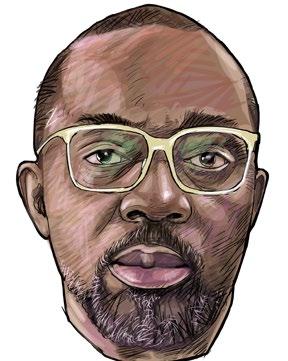

ogannah@thewillnews.com
Douglas Egharevba, a Nigerian who sought refuge in Canada since 2017, harboured hopes of beginning afresh. However, on 17 June 2025, the Federal Court of Canada upheld a tribunal's decision to reject his asylum claim, not because he had committed any act of violence, but owing to his past political affiliations. A decade-long membership of both the Peoples Democratic Party (PDP) and the All Progressives Congress (APC), from the PDP's founding in 1999 until 2007, then the APC until 2017, proved sufficient for Canadian officials to deem him inadmissible under immigration law.
Canada's Immigration Appeal Division (IAD) ruled that Egharevba's political party connections, regardless of individual wrongdoing, constituted adequate grounds to consider him associated with organisations implicated in subversion or political violence. When the case reached the Federal Court, Justice Phuong Ngo upheld the inadmissibility ruling on subversion alone, opting not to rule on the IAD's more alarming claims of "terrorism".
This distinction is significant: neither a Canadian court nor the government has formally designated the PDP or APC as terrorist organisations in Canada's official registry under the Criminal Code.
Technical distinctions aside, the ruling carries a sobering message, one with profound implications for Nigerians abroad. Whilst Canada may not have explicitly branded our political parties as terrorist organisations, the tribunal viewed Nigeria's political landscape through the prism of electoral violence and institutional failure, finding this sufficient justification to deny asylum.
How did Nigeria provide such ammunition to a foreign court? When politics turns violent, responsibility can be traced to the top. Our elite, political leaders, financiers, and power brokers, have treated elections as battlegrounds rather than democratic processes. Thuggery, intimidation, and vote manipulation are not accidents; they are planned, financed and rewarded. From Rivers State to Kogi, Lagos to Kano, the pattern remains consistent: violence breeds victory and perpetrators walk free.
Our political parties have been complicit. Rather than promoting ideals and internal democracy, they have offered patronage and factionalism. Primaries have been regularly manipulated rather than transparent. Candidates with questionable credentials or worse have often been rewarded with tickets when they delivered results, by any means necessary. Accountability has been virtually non-existent. In such an environment, violence becomes strategy rather than aberration.
The Independent National Electoral Commission (INEC), entrusted as the guardian of fair elections, has too often failed in its duty. The 2023 general election and prior polls were plagued with issues: delays in result uploads, opaque collation processes, logistical breakdowns and poor coordination. Civil society group
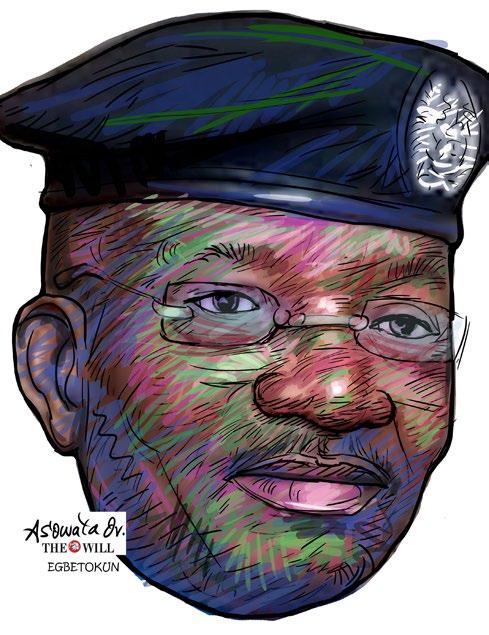
Yiaga Africa noted that INEC violated its own guidelines on timely uploads. International observers, from the EU to IRI/NDI, reported "operational shortcomings" and "poor administration". Conflict trackers, such as ACLED, recorded spikes in election-related violence. This institutional failure lends credence to the claims Canada's tribunal reviewed.
Under Canadian law, immigration officials may deny entry to individuals connected to organisations found, on a "reasonable grounds" standard, to have engaged in subversion of democratic government. Given that Nigeria's electoral record is punctuated by episodes of violence, coercion and contested results, the tribunal concluded that Egharevba's party affiliations alone, tainted as the record was, were sufficient to refuse his asylum claim.
The divide this creates runs deep. On one side, the elite operate with foreign passports, bank accounts and diplomatic protection. On the other, ordinary Nigerians, students, businessmen and women, asylum-seekers, may carry invisible baggage based solely on past and or perceived party membership.
Predictably, the domestic reaction proved defensive. Nigeria's Ministry of Foreign Affairs condemned the ruling, calling it
"baseless" and an affront to our sovereignty. PDP and APC officials declared it "misinformed" and "biased". Lawmakers warned that treating legitimate political parties as criminal organisations risks undermining free political expression and democratic participation. Yet, this reaction misses the crux of the matter. This is not about outrage at Canada, it concerns confronting our failures. Had Nigerian elections been credible, INEC trusted, parties disciplined and violence punished, would Canada have possessed grounds for such a ruling? The court's reasoning may have been narrow, but it reflects a broader, uncomfortable truth: Our politics have rendered us vulnerable to disastrous foreign judgement.
Nevertheless, this should serve as a wake-up call rather than a crushing blow. If progress is to be achieved, it must begin with genuine reforms. First, electoral crimes must carry real consequences. The long-stalled Electoral Offences Commission, empowered, independent, and timely, needs to become reality rather than mere rhetoric. If party leaders who sponsor violence are not held accountable, nothing will change.
Second, INEC must deliver transparency and trust. Automatic release of polling-unit results, audit-ready processes, secure digital logs, and thorough testing of election technology well in advance should be standard, and non-negotiable.
Third, election-day security requires a risk-based and enforceable approach. Security deployments should align with credible intelligence, from civil society and independent monitors, and personnel who permit intimidation must face discipline or dismissal.
Fourth, the judiciary should resolve election disputes expeditiously. Protracted court battles erode faith, embolden coercion, and impede governance. Justice delayed is justice denied, and breeds impunity.
Canada's tribunal ruling is damning. It suggests that Nigeria's political system, in the view of foreign arbiters, appears complicit in electoral violence. This perception must be reversed, through substantive action rather than denial.
Let us be clear: no formal Canadian designation exists against the PDP or APC, so the ruling remains limited in scope. Yet it casts a spotlight we have long avoided. Whether we dismiss this moment as scaremongering or treat it as a catalyst depends on leadership, elite leadership willing to embrace change.
This is not a verdict. It is a warning to our political elites who continue to steal and deprive citizens of basic infrastructure and a thriving economy. I hope they are listening because enough is enough.
If we fail to repair our politics, we risk being defined by our failures. The choice remains ours.
The court's reasoning may have been narrow, but it reflects a broader, uncomfortable truth: Our politics have rendered us vulnerable to disastrous foreign judgement